Trinity Monday 2024
Announcement of Elections to Fellows and Scholarships
Trinity College Dublin was founded as a corporation consisting of the Provost, the Fellows and the Scholars. Scholars are elected annually in various subjects on the result of an examination held in Trinity term. Scholarship or research achievement of a high order is the primary qualification for Fellowship, coupled with evidence of the candidate's contribution to the academic life of the College and an effective record in teaching.
Traditionally, the election of new Fellows and Scholars is announced by the Provost on Trinity Monday (22 April 2024) at 10.00 a.m. from the steps of the Public Theatre. Four Honorary Fellows, Three Professorial Fellows, Forty Three New Fellows and Seventy Three New Scholars were elected this morning.
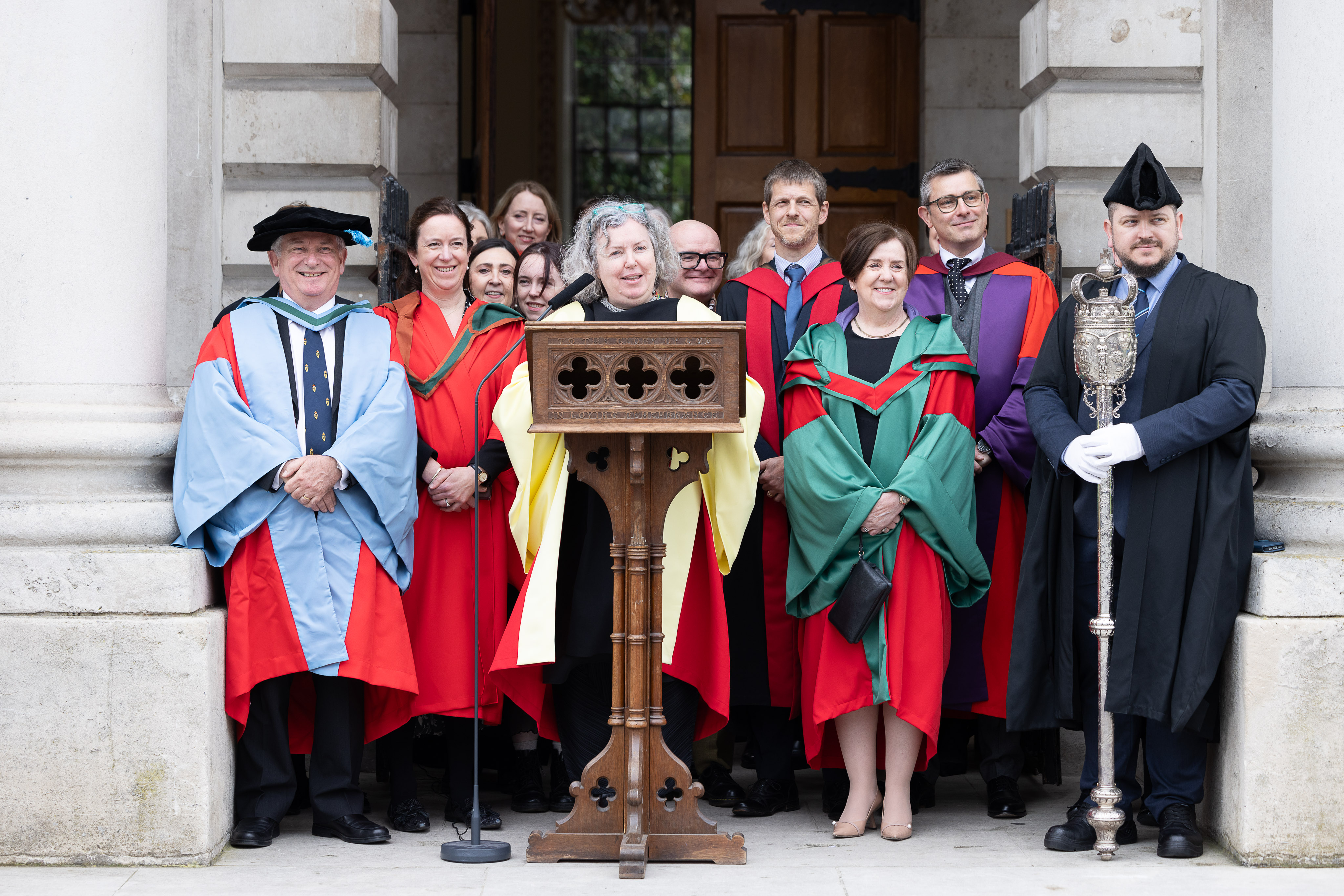
Photo credit: Paul Sharp, Sharppix
Honorary Fellowship
IN ACCORDANCE WITH THE PROVISION IN SECTION 11 OF THE CHAPTER ON THE FELLOWS IN THE 2010 CONSOLIDATED STATUTES, THE FOLLOWING HAS BEEN ELECTED TO HONORARY FELLOWSHIP:
- Peter Gallagher (Professor)
- Deborah Kelleher (Professor)
- Dermot Kelleher (Professor)
- Elizabeth Oldham (Professor)
Peter Gallagher (Professor)
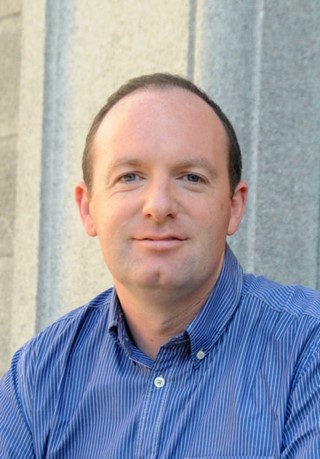
Professor Gallagher is Head of Astrophysics at the Dublin Institute for Advanced Studies and Director of DIAS Dunsink Observatory. He has a long association with College, having been a Professor of Physics, Director of the Physics & Astrophysics Moderatorship and Associate Dean of Research.
Professor Gallagher lead the installation of the LOFAR radio telescope at Birr Castle and is involved in numerous ESA and NASA space missions to study the Sun. He holds a B.Sc. in Physics & Mathematics from University College Dublin and an M.Sc. and a Ph.D. in Physics from Queen's University Belfast, and was a Research Fellow at Owens Valley Solar Array and Big Bear Solar Observatory in California and at NASA Goddard Space Flight Centre.
He is a co-founder of the Astronomical Observatories of Ireland, a cross-border initiative to build closer links between Armagh, Birr and Dunsink.
Professor Gallagher was invested as a Chevalier of the Ordre des Palmes académiques in 2017.
Deborah Kelleher (Professor)
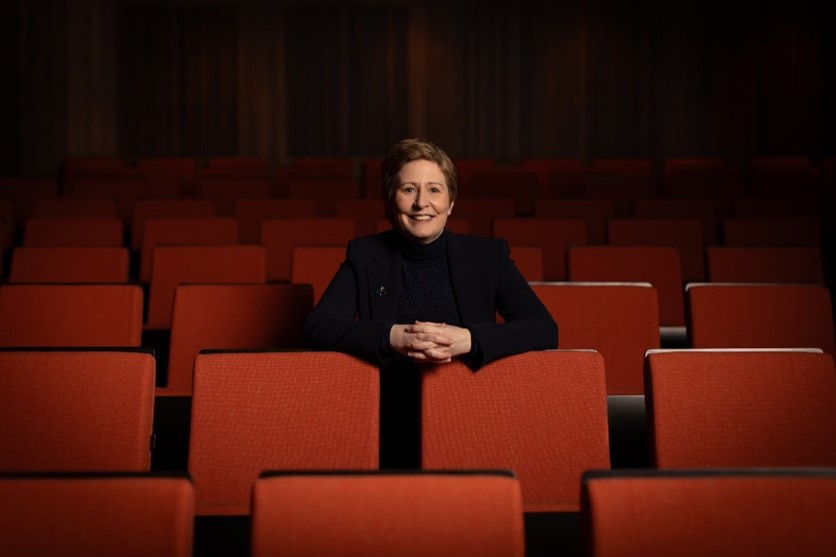
Appointed Director of the Royal Irish Academy of Music (RIAM) in October 2010, Deborah Kelleher has played an integral role in the strategic development of the institution’s international profile, outreach, estate, and academic courses. In 2013, the RIAM became an associate college of Trinity College Dublin, the University of Dublin (TCD), and Deborah led this significant transition. RIAM has also forged significant performance partnerships with many of the world’s most prestigious music conservatoires, including the Juilliard School, New York, Guildhall School of Music and Drama, Conservatoire de Paris, Mozarteum University Salzburg and the Liszt Academy, Hungary.
RIAM successfully bid for Erasmus+ funding to investigate power relations in higher music education (known as PRIhME), a significant research project which will influence learning and working environments across the international music education sector.
In January 2023, the RIAM re-opened its transformed campus on Westland Row in Dublin, a re-development devised and project managed under Deborah’s leadership and funded through public funds and private donors.
In 2022 Deborah was elected President of the European Association of Conservatoires, an umbrella group for over 300 conservatoires and the leading voice for Higher Music Education in Europe.Deborah graduated from Trinity with a B.A. (Mod.) in pure music in 1994.
Dermot Kelleher (Professor)
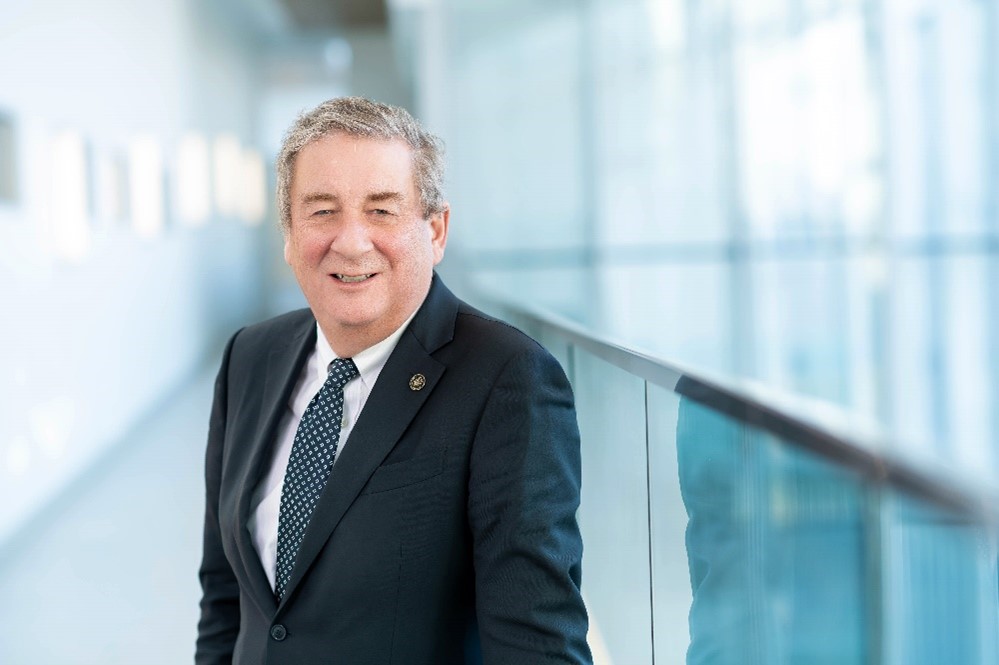
Professor Dermot Kelleher is a very proud graduate of Trinity College Dublin (M.B. 1978, M.D. 1994) who has led major medical schools in four countries across three continents, including Trinity College Dublin, Imperial College London concurrent with the Lee Kong Chian Medical School in Singapore and the University of British Columbia (UBC). He joined UBC in 2015 and serves as the Dean of the Faculty of Medicine and Vice-President, Health.
Professor Kelleher’s career has had a major focus on translational medicine: his research has examined immune responses in gastrointestinal disease and cancer and has resulted in more than 300 publications and 14 patents and the founding of three companies.
Over the years he has received many prestigious awards including Wellcome Senior Fellowship in Clinical Science, and the St. Luke’s, Graves and Conway Medals from the Royal Academy of Medicine in Ireland. He has also held many leadership positions in academic medicine in Ireland, Europe and Canada.
Elizabeth Oldham (Professor)
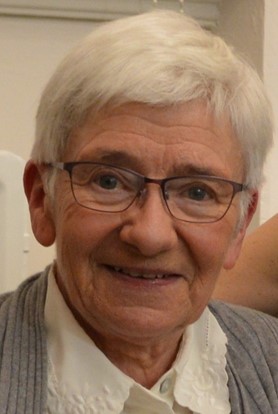
Elizabeth Oldham read mathematics in Trinity; she was awarded Scholarship in 1963 and a Gold Medal in 1965. Following graduate study in London, she returned to Trinity to do the Higher Diploma in Education and (after teaching in school) to take a Master in Education degree. She then worked in the School of Education until 2010, with some part-time secondment to the National Council for Curriculum and Assessment. Semi-retired, she teaches and supervises projects in the School of Mathematics while continuing her research.
Elizabeth’s main research area is mathematics education. She has been involved especially with large-scale comparative studies of curriculum and achievement; this ongoing work informs many of her publications. She publishes also on teacher education, use of IT in education, and computing education. Her teaching encompassed mathematics education, mathematics, IT / computing, statistics, research methods, and supervising students’ research. She served on College committees and with student societies, and was a Tutor for 32 years.
Elizabeth has engaged with many academic and professional bodies. In 2016 she was made an Honorary Member of the Association for Teacher Education in Europe. The Educational Studies Association of Ireland and the Irish Mathematics Teachers’ Association recently gave her Lifetime Achievement awards.
Professorial Fellowship
IN ACCORDANCE WITH THE PROVISION IN SECTION 7 OF THE CHAPTER ON THE FELLOWS IN THE 2010 CONSOLIDATED STATUTES, THE FOLLOWING HAVE BEEN ELECTED TO PROFESSORIAL FELLOWSHIP:
David Collings (Professor)
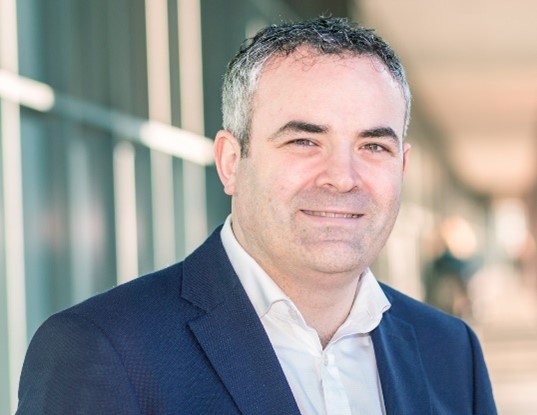
David Collings holds the Chair of Sustainable Business at Trinity Business School, Trinity College Dublin. He previously held faculty positions at Dublin City University, University of Sheffield and University of Galway and visiting positions at King’s College London, Nanyang Business School, and Cornell University as a Fulbright Scholar. He is a Member of the Royal Irish Academy and Fellow of the Academy of Social Sciences and Chartered Institute of Personnel and Development. He is a former Chair of the HR Division of the Academy of Management.
David is a leading international expert on human resource management, talent management, and sustainable work. He has published in leading international outlets including Academy of Management Journal, Organization Science, Journal of Management and Personnel Psychology, practitioner outlets including Harvard Business Review and MIT Sloan Management Review and 12 books.
Reflecting his impact on practice, he has been named as one of the most influential thinkers in the field of HR years by HR Magazine on five occasions.
Lindsey Earner-Byrne (Professor)
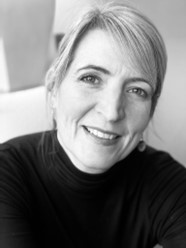
Lindsey Earner-Byrne is the Professor of Contemporary Irish History at the School of Histories and Humanities, Trinity College Dublin. She has researched and published widely on modern Irish history with a particular focus on poverty, welfare, gender, sexuality, health and vulnerable and marginalised groups. Most recently she has co-authored a history of Ireland’s abortion journey with Professor Diane Urquhart of Queen’s University Belfast, The Irish Abortion Journey, 1920-2018 (Palgrave Macmillan, 2019). Her other publications include Letters of the Catholic Poor: Poverty in Independent Ireland, 1920-1940 (2017) and Mother and Child: Maternity and Child Welfare in Dublin, 1922-50 (2007).
She narrated and co-authored documentary Forgotten: The Widows of the Irish Revolution (RTÉ One, May 2022).
Cathal Walsh (Professor)
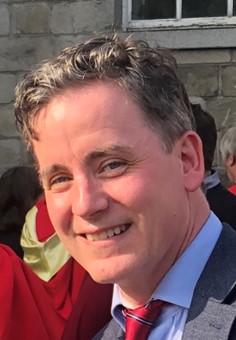
Professor Cathal Walsh is the Professor of Biostatistics in the School of Medicine at Trinity College Dublin, having previously held the Chair of Statistics at the University of Limerick. His work in Medical applications in the last decade was supported by a Health Research Board Research Leader award in Health Decision Science. He has held visiting appointments in Bayesian groups in Australia (at Queensland University of Technology) and in the Harvard School of Public Health in the United States. He is a Fellow of the Royal Statistical Society, having served on Council and as Honorary Officer for Sections and Local Groups. With others in the Society he has helped develop the African Institute for Mathematical Sciences M.Sc. in Statistics and Data Science, visiting and lecturing on that programme.
His research interests are in evidence synthesis and disease modelling, and he was part of the Irish Epidemiological Modelling Advisory Group, working within the Health Protection Surveillance Centre during the COVID-19 pandemic. He has been an advisor to the National Centre for Pharmacoeconomics on statistical methodology for Health Technology Assessment for over 15 years, and has been the trial statistician for clinical trials in stroke, depression and activity interventions.
Fellowship
IN ACCORDANCE WITH THE PROVISION IN SECTION 7 OF THE CHAPTER ON THE FELLOWS IN THE 2010 CONSOLIDATED STATUTES,THE FOLLOWING HAVE BEEN ELECTED TO FELLOWSHIP:
- Joanne Banks (Dr)
- Julie Bates (Associate Professor)
- Gareth Bennett (Associate Professor)
- Caroline Brophy (Professor)
- Andrew Butterfield (Professor)
- Yekaterina Chzhen (Assistant Professor)
- Catherine Conlon (Professor)
- Deirdre Connolly (Professor)
- Catherine Darker (Professor)
- Jesse Dillon Savage (Assistant Professor)
- Henry (Hal) Duncan (Professor)
- Peter Dunne (Professor)
- Susan Flynn (Dr)
- John Gallagher (Assistant Professor)
- Edurne Garcia Iriarte (Assistant Professor)
- Bidisha Ghosh (Professor)
- Neale Gibson (Professor)
- Joseph Harbison (Associate Professor)
- Meriel Huggard (Professor)
- David Igoe (Professor)
- Alan Irvine (Professor)
- Jo-Hanna Ivers (Associate Professor)
- Iracema Leroi (Professor)
- Kate Maguire (Professor)
- Stephen Maher (Associate Professor)
- Joanna McGouran (Assistant Professor)
- Eoin McNamee
- Michael Monaghan (Professor)
- Gary Moran (Associate Professor)
- Damian Murchan (Associate Professor)
- Noel Ó Murchadha (Professor)
- Anne O'Connell (Professor)
- Martha O'Hagan Luff (Professor)
- Nicholas Payne (Professor)
- Daniele Pevarello (Professor)
- Maria Porcedda (Professor)
- Maria Santos-Martinez (Professor)
- Matthew Saunders (Assistant Professor)
- Fintan Sheerin (Associate Professor)
- Kenneth Silver (Assistant Professor)
- Mark Sweetnam (Assistant Professor)
- Jürgen Uhlich (Professor)
- Sven Vanneste (Professor)
Joanne Banks (Dr)
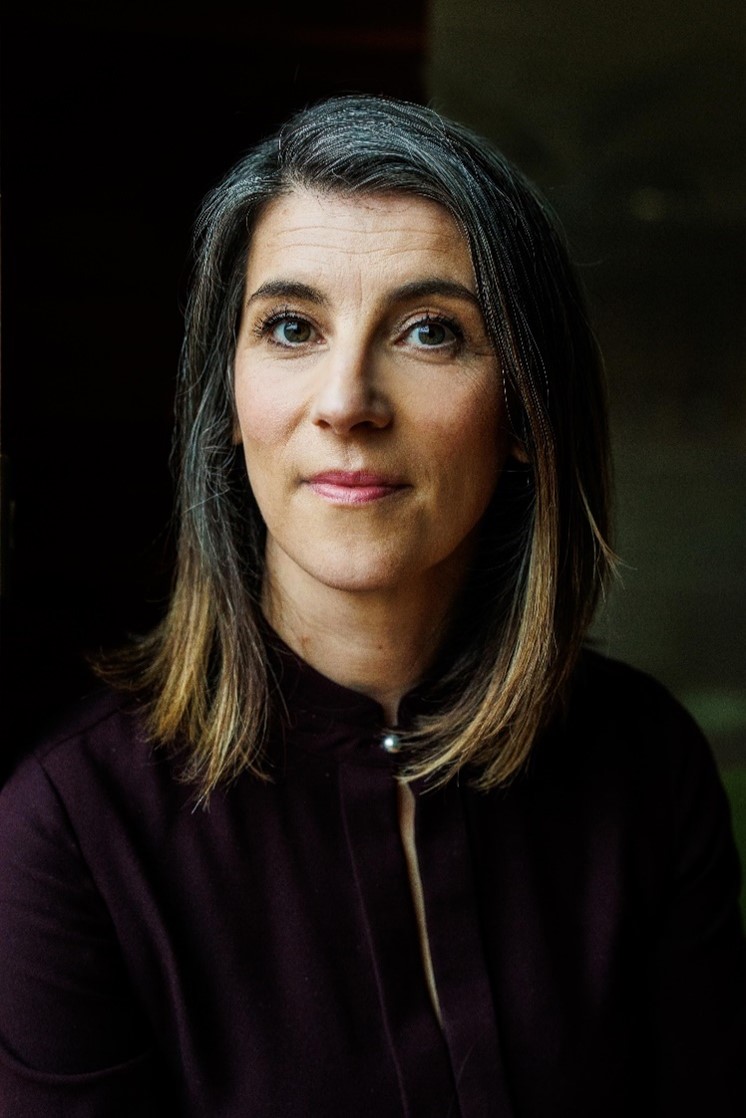
Dr Joanne Banks is a lecturer and researcher in inclusive education at the School of Education. She previously worked in education research at the Social Research Division of the Economic and Social Research Institute. She holds a B.A in Geography and Sociology from Trinity College Dublin and an M.A. and Ph.D. from University College Dublin. She is an internationally recognised field-leader in inclusive education, with 80+ peer-reviewed outputs, and academic advisory roles in Irish education policy development.
Dr Banks’ research interests are in the field of inclusive education and educational inequality. She has published widely on special and inclusive education policy and practice, school exclusion, and student diversity. She is the presenter and author of the Inclusion Dialogue podcast series and books: The Inclusion Dialogue: Debating issues, challenges and tensions with global experts and Conversations and Key Debates in Inclusive and Special Education: Global Insights from ‘The Inclusion Dialogue’.
Julie Bates (Associate Professor)
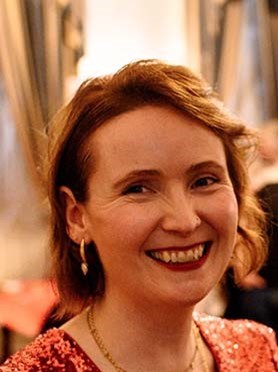
Dr Julie Bates’ research contributes primarily to Beckett Studies and Irish Studies. She has a particular interest in writers and artists who are formally inventive while restricting themselves to certain obsessively recurring themes and preoccupations, who make creative use of discarded materials, and who work with both text and image. Her research is increasingly stimulated by ideas from Environmental Humanities. Her first book, Beckett's Art of Salvage, was published by Cambridge University Press in 2017. She has published articles and chapters in the Journal of Beckett Studies, Samuel Beckett Today/Aujourd’hui, and the Oxford Handbook of Modern Irish Theatre.
Dr Bates' current Beckett research follows two strands: the first draws on Environmental Humanities and considers the potential of Beckett’s writing to productively undermine anthropocentrism or human exceptionality, and to address or reconceptualise relationships between the human, nonhuman animal, and environment. The second strand of her Beckett research seeks to disrupt the masculinist heritage in which he has been inscribed.
Within Irish Studies, she has published on modern and contemporary fiction, non-fiction, and visual art. Her current book project is a study of the American writer and artist Erica Van Horn. In 2022 she co-edited a special issue of Word & Image with Léa Vuong (University of Sydney). ‘Louise Bourgeois: Through the Archives’ presented new scholarship emerging from the French-American artist’s recently opened New York archive. The issue featured contributions in English and French by art history and literary critics, museum and gallery professionals, and established the central place of writing in Bourgeois’s practice.
Gareth J. Bennett (Associate Professor)

Dr Gareth J. Bennett, B.A., B.A.I., M.Sc., Ph.D., C.Eng., Senior Member AIAA, Fulbright Scholar, is an Associate Professor in the School of Engineering, Trinity College Dublin, Ireland. His research interests lie in the domain of aeroacoustics and acoustic metamaterials. He is an elected member of the Aeroacoustics Specialists Committee of the Council of European Aerospace Societies (CEAS-ASC) and is a member of the editorial board for the key journal in his field: International Journal of Aeroacoustics.
Dr. Bennett has worked as a research fellow in the national nuclear facility of Portugal, a national fluid dynamics laboratory in Grenoble, France (LEGI) and in the D-School and School of Engineering in Stanford University where he was a funded Visiting Scholar. In 2016 he was awarded a Fulbright Scholarship to Notre Dame and NASA Glenn where he researched innovative low noise solutions to reduce aviation noise for a sustainable environment. In 2020 and 2023 he was the technical co-chair representing Europe of the AIAA/CEAS Aeroacoustics Conferences (AVIATION FORUM) in both Reno and San Diego, US. Dr Bennett has been the Principal Investigator on six EU framework collaborative research projects, of which he has been full project coordinator of three.
His current EU project: INVENTOR seeks to reduce airframe noise. He has published over 120 peer-reviewed journal and conference papers, over 60% of which are co-authored with international collaborators and 20% are co-authored with international industry partners.
Caroline Brophy (Professor)
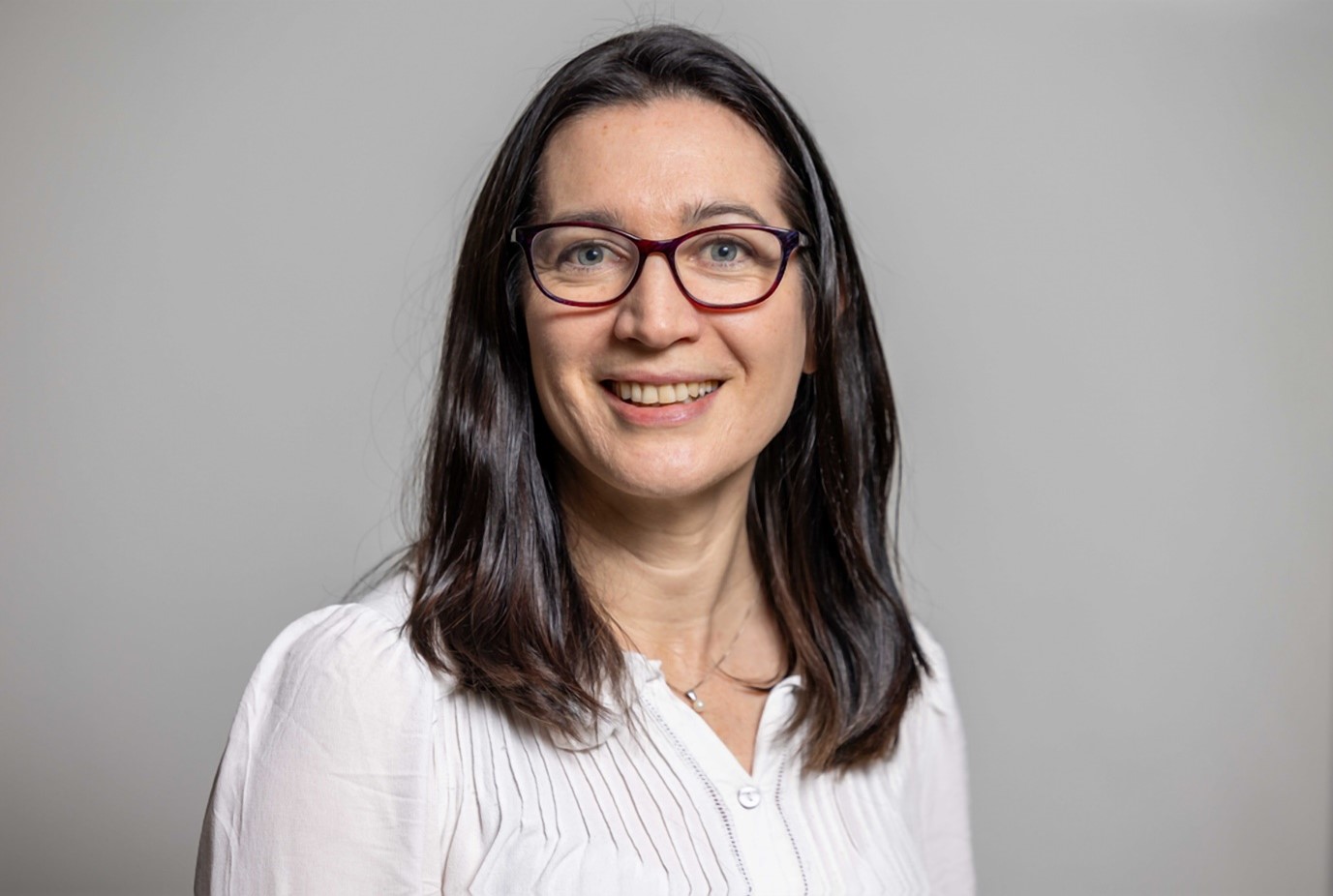
Caroline Brophy is a Professor in Statistics in the School of Computer Science and Statistics. She completed her Ph.D. in Statistics at University College Dublin (2004-2008). Prior to joining Trinity in 2019, she held a faculty position at Maynooth University (2008-2019). Professor Brophy’s research focuses on developing novel statistical methods that address challenging problems in modelling data from ecosystems. Her statistical innovations are being used to disentangle the multiple dimensions inherent in the relationship between an ecosystem’s biodiversity and the outputs it provides. In collaborative research projects, her work is advancing ecological and agricultural knowledge, and contributing to reducing the environmental footprint of agricultural production systems.
Her research work is funded by a range of sources including the European Commission, Science Foundation Ireland and the Department of Agriculture, Food and Marine, and she is a Funded Investigator with the SFI ADAPT Research Centre.
She is currently the lead Coordinator of a Marie Skłodowska-Curie Doctoral Network Action that is investigating solutions to improve the sustainability of agricultural crop rotations systems in an interdisciplinary approach.
Andrew Butterfield (Professor)
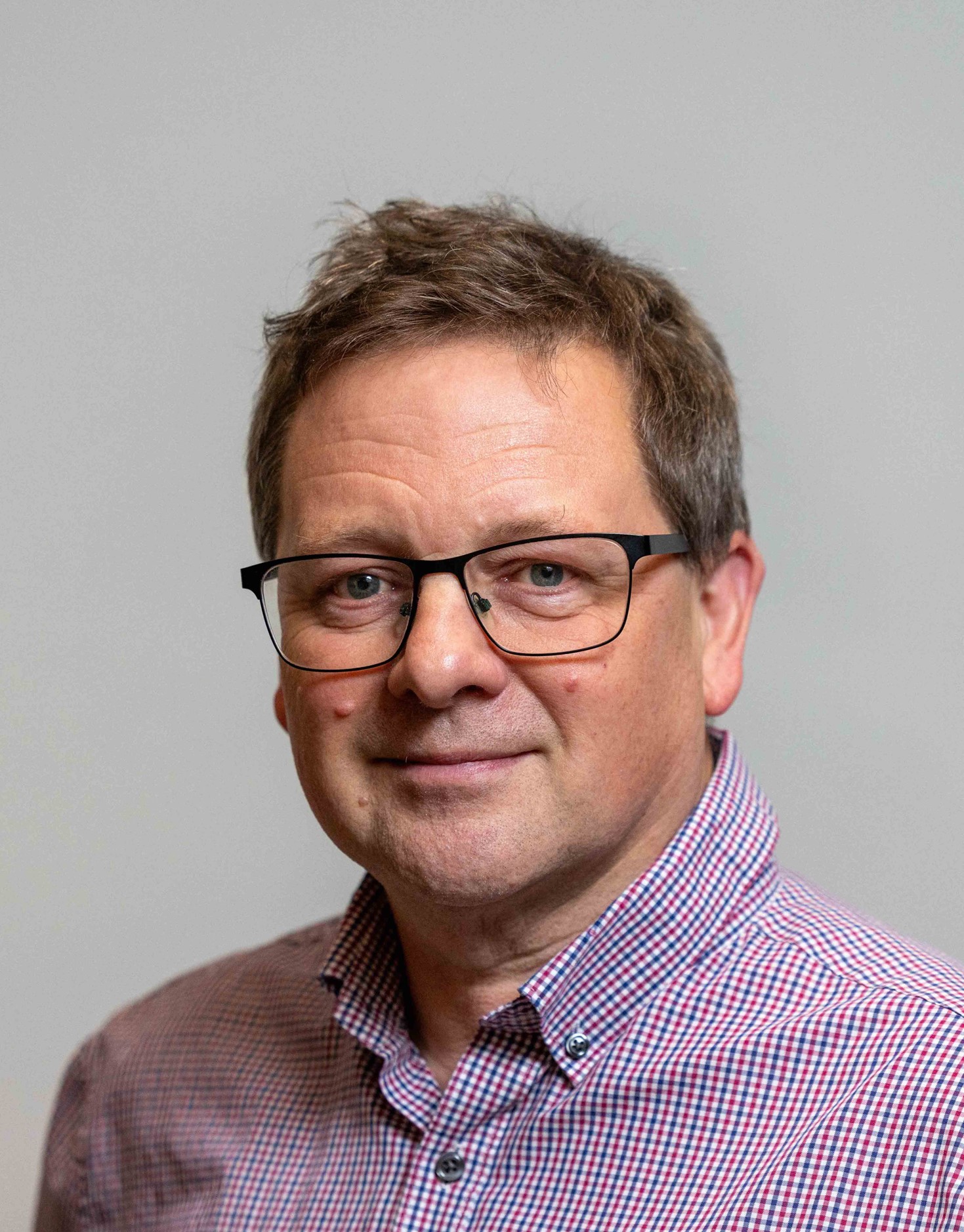
Andrew Butterfield is based in the School of Computer Science and Statistics. He obtained a B.A.I. (1983), and a Ph.D. (1990), from Trinity College Dublin. His research has ranged from software to optimise chip hardware designs to formal methods, a computing discipline that explores the use of mathematics and logic, to model and reason about hardware and software correctness. Recent emphasis has been on Unifying Theories of Programming (UTP). This is currently being applied to software verification methodologies he developed for the European Space Agency and industrial partners.
Andrew was active in an Irish formal method group to support researchers in this field. He has been programme committee member for over 30 international conferences, and been chair for 5, including hosting two conferences in Trinity College Dublin. He is a member of Formal Methods Europe, and is an Associate Editor for the ACM Formal Aspects of Computing journal.
Yekaterina Chzhen (Assistant Professor)
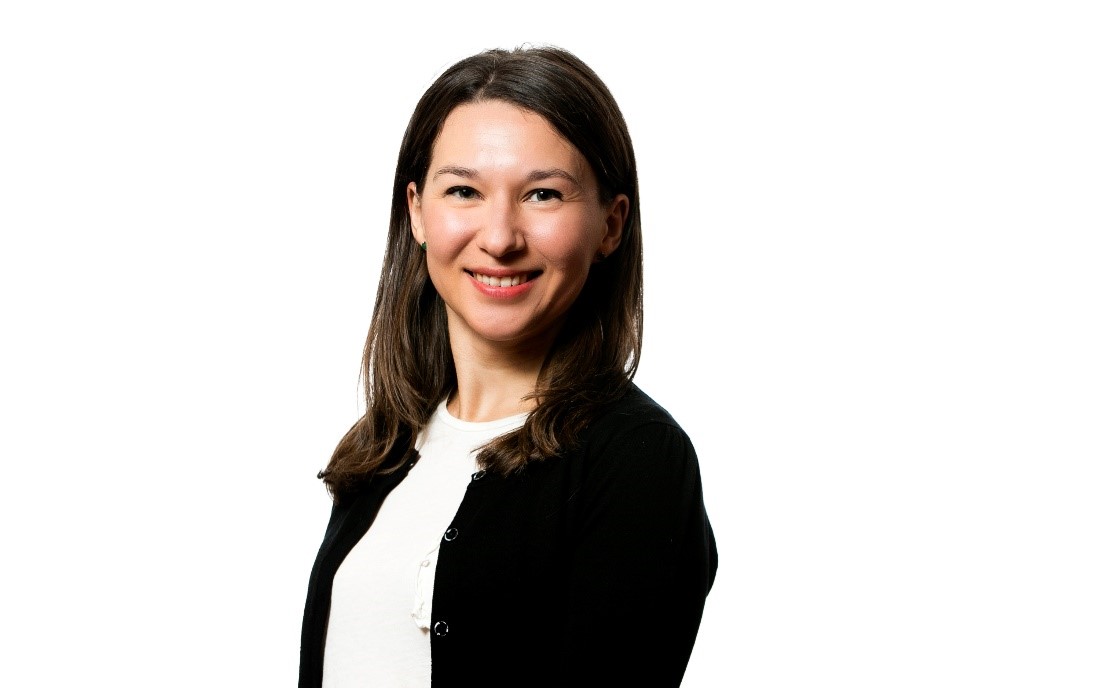
Kat Chzhen is an Assistant Professor in Sociology and a member of the Trinity Research in Childhood Centre (TRiCC) management board. Before joining Trinity in 2019, Kat spent six years at the UNICEF Innocenti Research Centre in Florence, where she was leading a comparative study on inequalities in childhood in higher-income countries. Prior to that, Kat spent two years as a Post-Doctoral Fellow in Quantitative Methods in Social and Political Sciences at the University of Oxford and a Non-Stipendiary Research Fellow at Nuffield College. She received her Ph.D. in Social Policy from the University of York in 2011.
Kat works on poverty and inequality across the life course, focusing on material well-being, education, health, and life satisfaction.Catherine Conlon (Professor)

Catherine Conlon is Associate Professor in Social Policy and currently PI of HEA North South Research Programme funded project exploring Reproductive Citizenship on the island of Ireland post Repeal in the Republic and decriminalisation of abortion in Northern Ireland, entitled ReproCit for short.
Catherines research focuses on reproduction policy and the social politics of reproduction and its effects on positionality and the gendered ordering of roles and relations and engages qualitative methodologies informed by critical, post-humanist perspectives. Catherine publishes on abortion seeking, concealing pregnancy, care and intergenerational relations and methodologies. Catherine was PI (2019-2022) of the Unplanned Pregnancy and Abortion Care (UnPAC) study, designated the service user data strand informing the statutory review of the Health (Termination of Pregnancy) Act 2018. Catherine also served as expert academic adviser to the Independent Chair of the Review and appeared twice before the Joint Oireachtas Committee on Health considering the Review.
Catherine currently holds the HEA North South Research Project Award ReproCit researching how differing pathways to legalising abortion on the island of Ireland 2018-19 are shaping empirical formations of reproductive citizenship, being carried out with Dr Kate Antosik-Parsons in TCD and Dr Fiona Bloomer and Dr Emma Campbell at University of Ulster.
Deirdre Connolly (Professor)
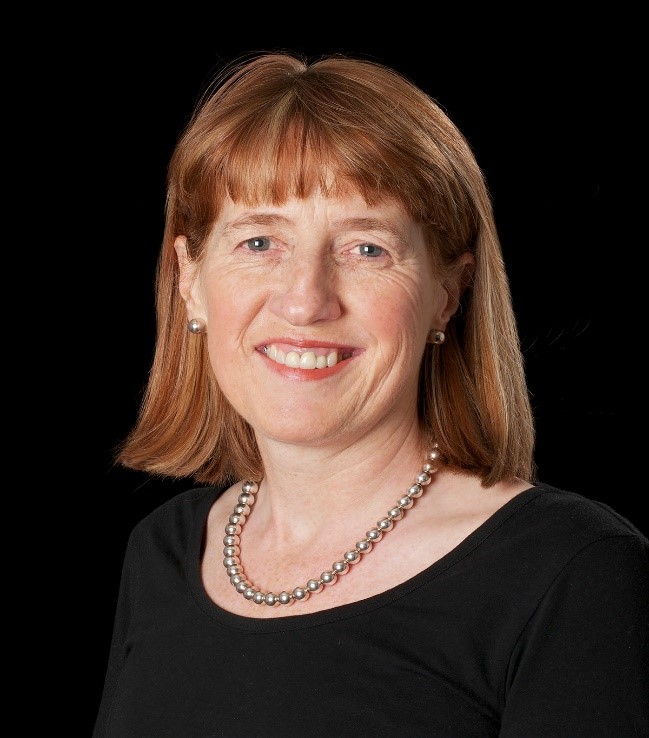
Dr. Deirdre Connolly is Professor in Occupational Therapy. Her research focuses on examining how cancer-related symptoms such as fatigue, stress and treatment-related cognitive impairments can affect everyday activities including returning to education and work during and after cancer treatment. She has developed and tested novel rehabilitation interventions to reduce the impact of cancer-related difficulties at all stages of the cancer trajectory. These evidence-based interventions are being implemented in national cancer centres as core components of cancer-survivorship clinical pathways for individuals who have completed cancer treatment.
Her research is funded by HRB, the Irish Cancer Society and HSE. Due to her expertise in cancer survivorship Deirdre is a member of multiple national and international health-related organisations that focus on improving quality of life and healthcare services and delivery for cancer survivors. She regularly presents the findings of her research at national and international conferences. Deirdre is also Director of the M.Sc. in Cancer Survivorship.
Catherine Darker (Professor)
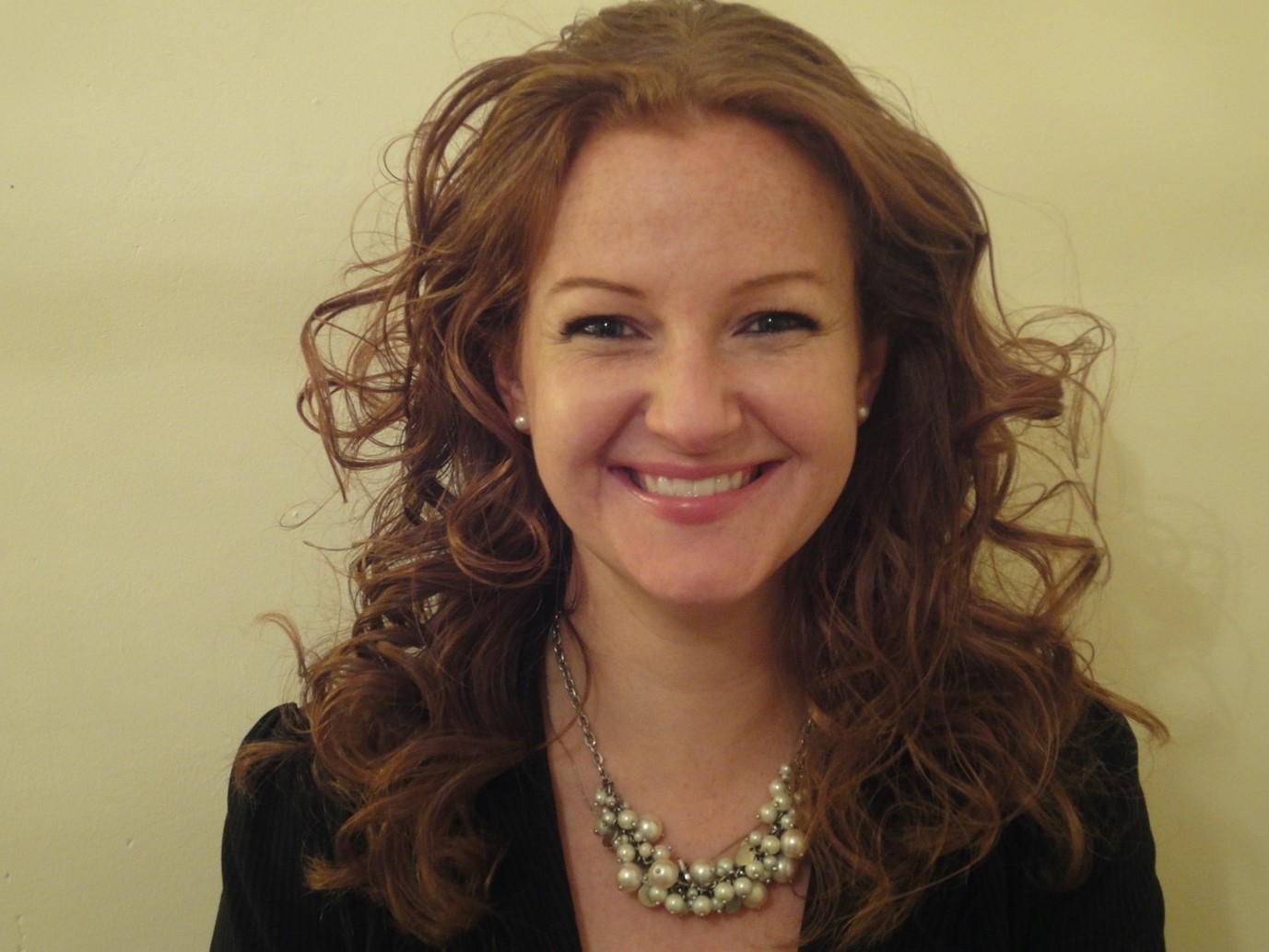
Professor Catherine Darker is a Health Psychologist, and is the Associate Professor of Health Services Research. She joined the Discipline of Public Health & Primary Care, School of Medicine, Trinity College Dublin in 2007. She has held senior managerial positions within the School, serving as both Head of Discipline, and Director of Teaching and Learning (Postgraduate). Catherine’s research has been funded by the Health Research Board, Irish Research Council and the Health Service Executive. Her research expertise lies within two themes. The first theme relates to changing the behaviours of patients, clinical staff and the general public to improve health outcomes; and the second theme relates to using implementation science to support the translation of research into policy and practice.
Catherine routinely uses ‘Public and Patient Involvement’ (PPI) within her research from the design stage, improving its relevancy and increasing its societal impact.
Jesse Dillon Savage (Assistant Professor)
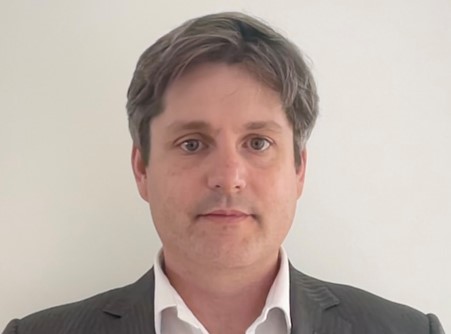
Assistant Professor Jesse Dillon Savage is a political scientist researching issues related to international relations, conflict, and civil-military relations. He has a Ph.D. from Northwestern University, was a post-doctoral fellow at Columbia University, and previously held an academic position at the University of Melbourne before moving to Trinity College Dublin.
Professor Dillon Savage’s research has provided innovative accounts of the interaction between domestic and international politics, with an emphasis on security and the role of the military in politics. His book “Political Survival and Sovereignty in International Relations” was published by Cambridge University Press and addresses issues of international hierarchy and sovereignty. His other research has appeared in top journals in international relations and political science such as the Journal of Conflict Resolution, Journal of Peace Research, and International Studies Quarterly.
His research is currently supported by funding from an Irish Research Council Laureate Award.
Henry (Hal) Duncan (Professor)
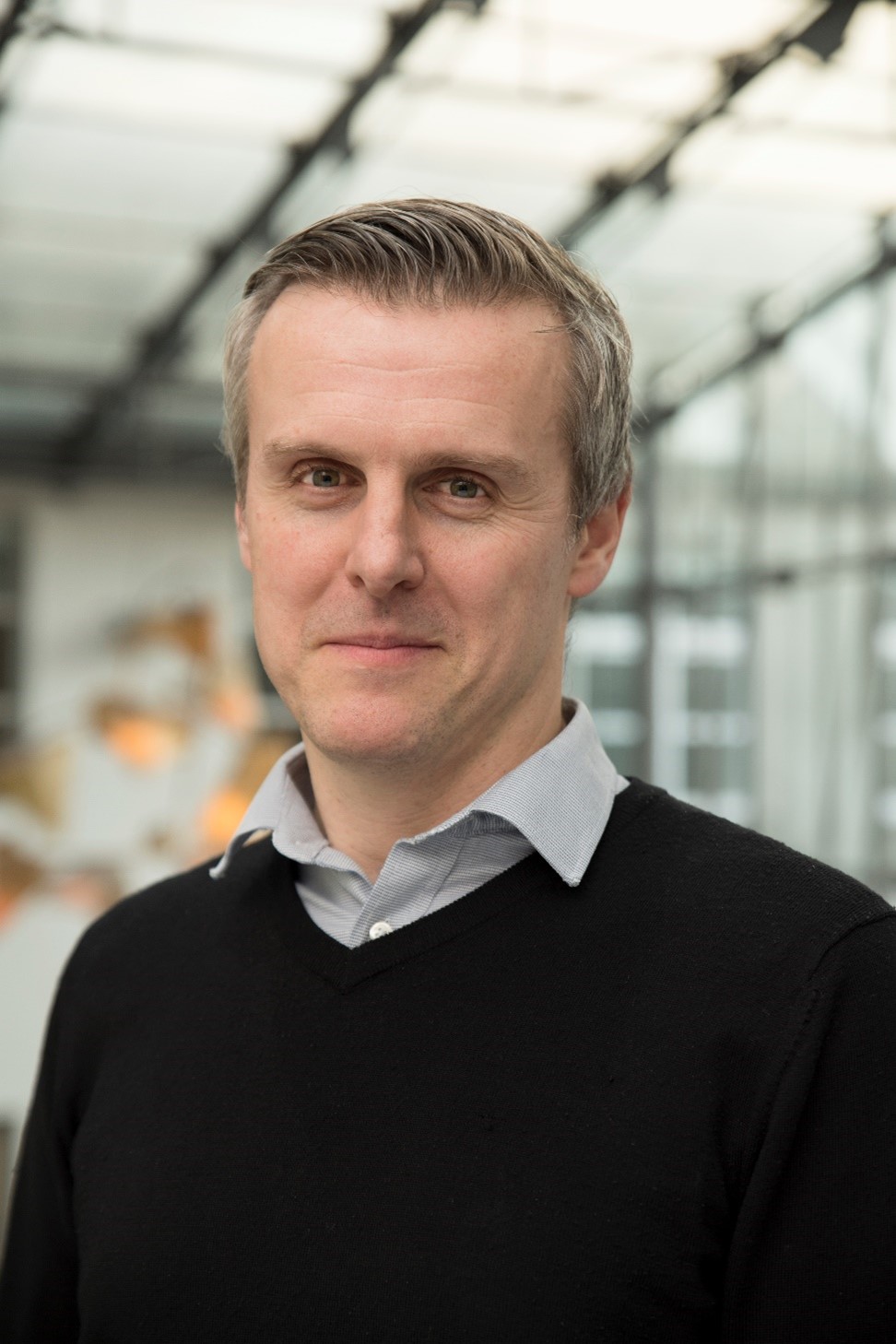
Hal Duncan is a Professor and Consultant in Endodontics in the School of Dental Science, in which he leads teaching, research and service delivery in that area. He received his dental degree from the University of Glasgow, speciality masters training from King’s College London and his Ph.D. from the University of Birmingham. Hal’s research area of interest is basic and translational pulp biology and endodontics, with a specific focus on the role of epigenetic modification and matrix-metalloproteinases in next-generation therapeutic strategies for dentine-pulp regeneration. To that end, he has published over 150 international peer-reviewed scientific articles, 18 book chapters as well as editing 3 textbooks. He currently maintains a research lab and is the principal supervisor of clinical and scientifically trained PhD students and postdoctoral researchers in his research area for which he has received significant competitive funding.
Currently, he is Editor-in-Chief of the International Endodontic Journal, the President of the European Society of Endodontology and the President of the Pulp Biology and Regeneration Group of the International Association of Dental Research.
Peter Dunne (Professor)
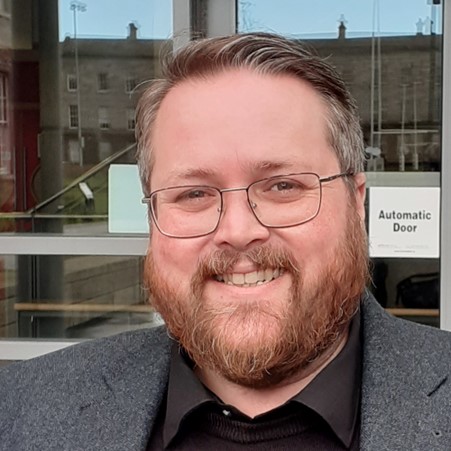
Peter Dunne completed his degree in chemistry at the National University of Ireland, Galway, where he remained to carry out his Ph.D. research under the supervision of Profs. Des Cunningham and Pat McArdle. He then joined the group of Prof. Richard Walton at the University of Warwick developing hierarchical catalysts for the abatement of pollutants. Subsequently he moved to the Chemical Engineering Department at the University of Nottingham as a postdoctoral fellow under Prof. Ed Lester, where he established large-scale continuous-flow hydrothermal and solvothermal routes to a wide variety of inorganic nanomaterials.
In 2016 Peter took up his post as Assistant Professor of Inorganic Energy Materials in the School of Chemistry at Trinity College Dublin. He has been the course director of the Nanoscience moderatorship (joint with the School of Physics), and is currently the deputy chair of the School’s EDI committee.
His group’s research focus is on the development of cleaner, greener routes to functional nanomaterials including transparent conducting oxides, quantum dots, carbon dots, and magnetic nanoparticles.
Susan Flynn (Dr)

Dr Susan Flynn has been lecturing full-time in higher education since 2018 and has built a substantial portfolio of publications in this time. Dr Flynn’s Ph.D. examined, through a phenomenological and biographical narrative interpretative method, the impact of the economic recession on intellectually disabled young people and their families. Since completion of her Ph.D., her research work has, and continues to, focus upon child and family services. Within this, Dr Flynn has developed a particular focus on the intersection of disability and child protection, as well as on matters of pertinence to social work and social care professions in Ireland.
Dr Flynn, within her role as Asst. Professor in the School of Social Work and Social Policy, is also Director of the Masters in Social Work program. Dr Flynn has over a decade of practice experience in a diverse range of settings including child protection and welfare services; intellectual disability services; residential social care practice; acting managerial work; youth justice work; special education; counselling and advocacy and other roles.
John Gallagher (Assistant Professor)
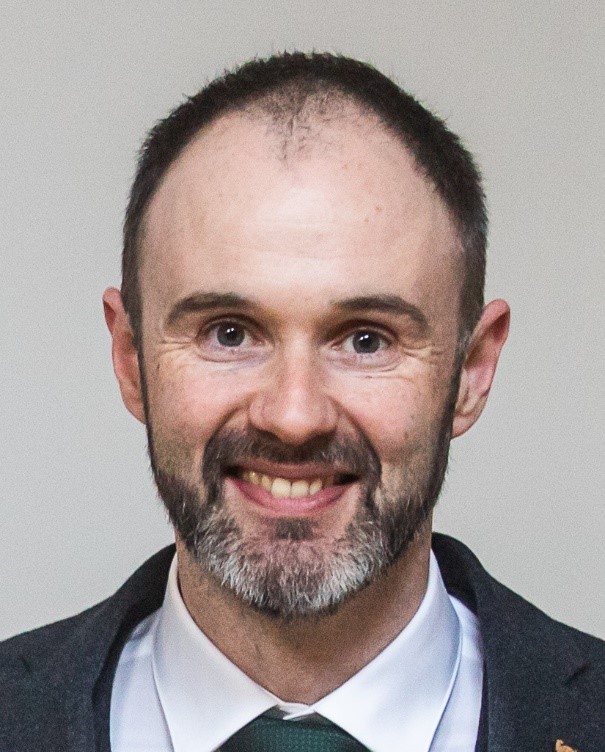
John is an Assistant Professor in Environmental Systems Modelling in the Department of Civil, Structural & Environmental Engineering in Trinity College Dublin. He completed his Ph.D. in Trinity in 2013, before moving to the UK as a postdoctoral researcher for several years, and returned to join Trinity's academic staff in 2017. His research expertise lies in developing low-carbon and resource-efficient energy and engineering solutions, focusing on developing passive air pollution and environmental quality controls for the built environment, energy and renewable energy technologies, and innovation design systems for building infrastructure.
He is leading and contributing to several European (Horizon2020, INTERREG) and National (EPA, SFI, EI) projects on topics of environmental pollution, water-energy nexus, energy efficiency/recovery technologies, and life cycle/circular economy solutions. He is an experienced lecturer, delivering content on undergraduate and postgraduate programmes demonstrating leadership in sustainable development education within and across disciplines in Trinity.
Edurne García Iriarte (Professor)
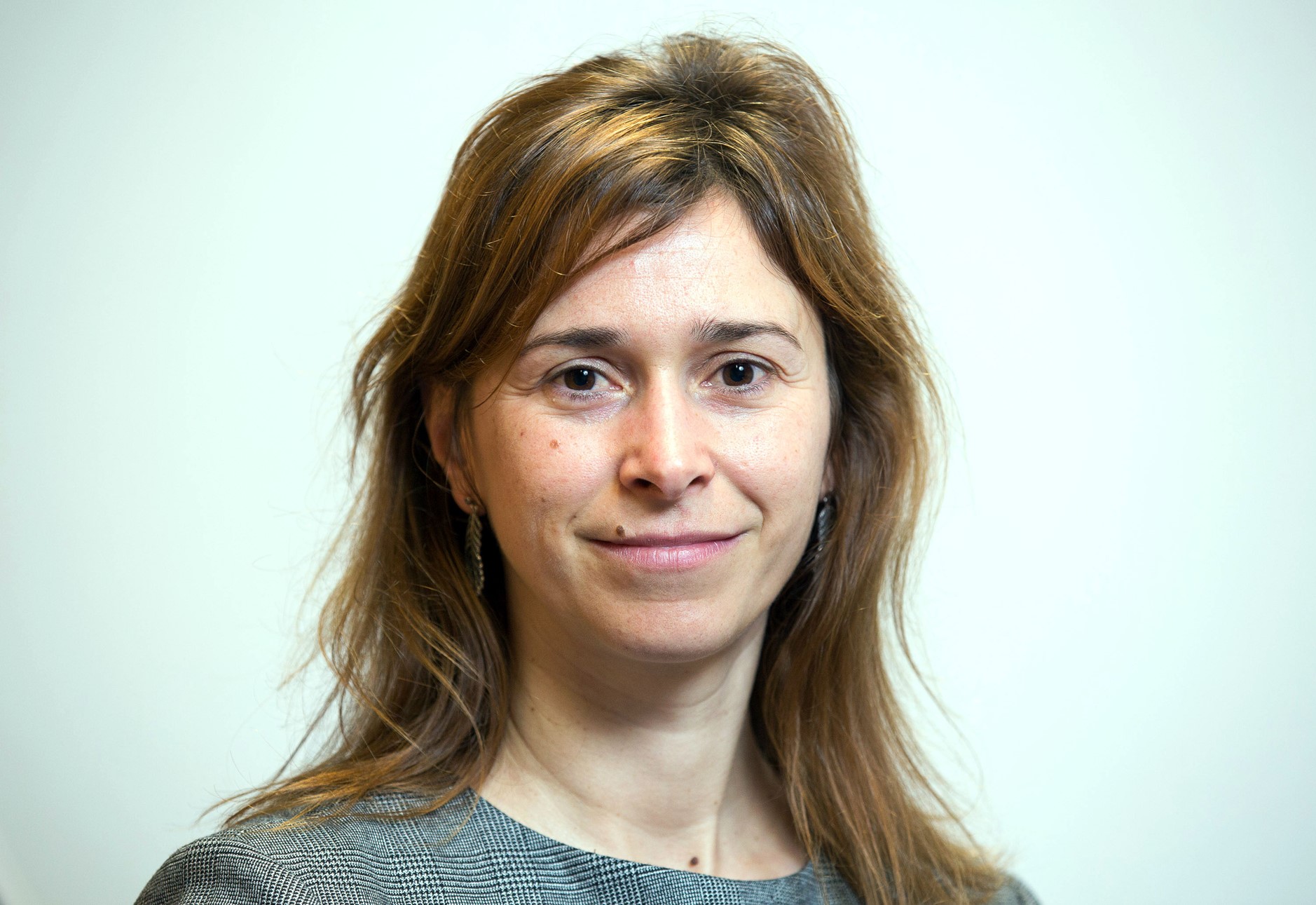
Dr García is Assistant Professor in the School of Social Work and Social Policy. She graduated from the University of Salamanca (B.A., Psychology) and from the University of Illinois at Chicago (UIC) (M.Sc. & Ph.D., Disability Studies). Prior to joining Trinity, she worked at the Centre for Capacity Building on Minorities with Disabilities Research (UIC). Subsequently, she held the post of Marie Curie Post-Doctoral Research fellow, where she coordinated the first Irish study about the lives of people with intellectual disabilities in collaboration with them. Dr. García’s research contributes to the development and understanding of participatory approaches to knowledge co-production in Ireland and internationally.
She sits on the Executive Editorial Board of the British Journal of Learning Disabilities and is a founding member of the first Inclusive Research group in the leading international organisation for the study of intellectual disability (IASSIDD). She has published widely on inclusive research and community inclusion and is co-editor of Disability and Human Rights: Globally Perspectives (Palgrave). She was a recipient of the Excellence in Supervision of Research Students Award in 2023.
Bidisha Ghosh (Professor)
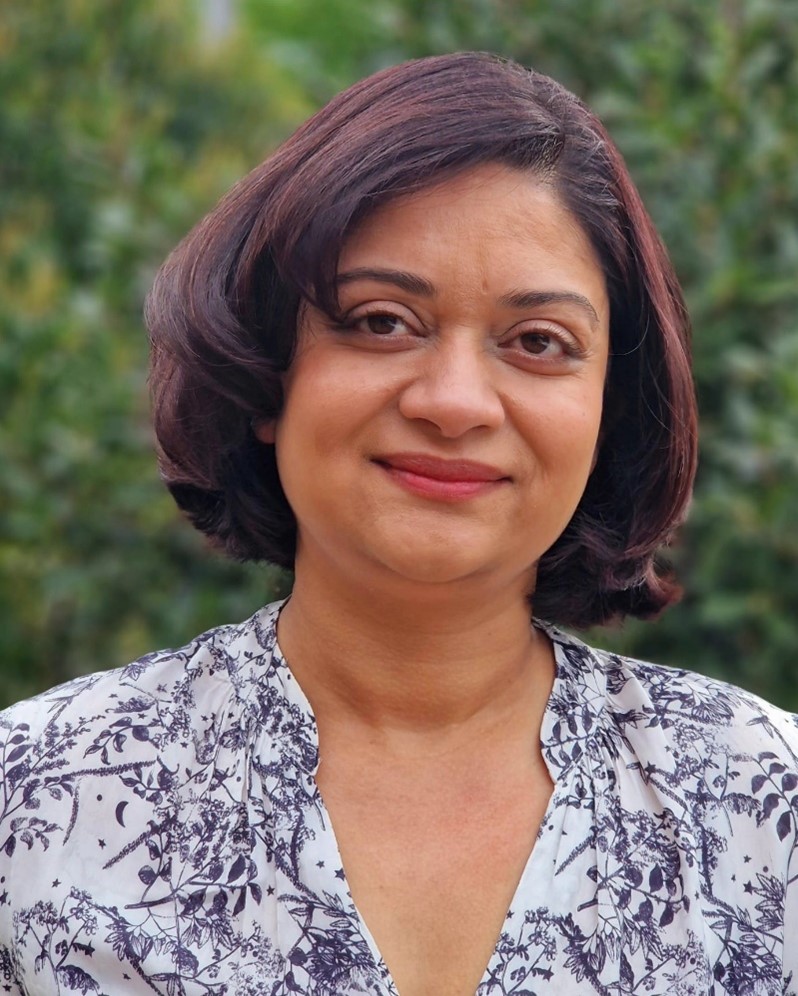
Professor Bidisha Ghosh is leading the QUANT group in the School of Engineering. She received a B.E. degree from Jadavpur University, India in 2003 and she received her Ph.D. in 2007 from Trinity College Dublin. Professor Ghosh has combined her background in Civil Engineering with her experience of experiment design to create multiple original, leading-edge, data-driven models to aid monitoring of system health by forecasting trends and detecting anomalies. She has published over 175 peer-reviewed conference and journal papers. Her research has extensively been used in cycling and other sustainable transport related policy documents by WHO and GOV.UK illustrating global impact of her research.
She has been an investigator in multiple national and EU projects in the field of traffic & transportation modelling, environmental modelling, and infrastructure management. She was the chair of Irish Transport Research Network (ITRN) between 2017-2021, the national body of Irish transportation researchers and promoted the interest of Irish transport research across the world. She is leading the transport strand in Next Generation Energy Systems (NexSys) program funded by Science Foundation Ireland.
Neale Gibson (Professor)
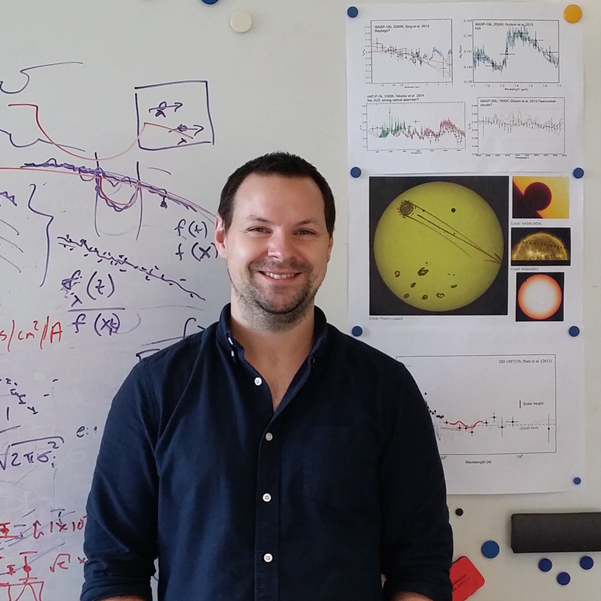
Neale Gibson is an astrophysicist in the School of Physics at Trinity College Dublin. Originally from Belfast, he did his undergraduate degree and P.hD. at Queen’s University Belfast, followed by postdoctoral positions at the University of Oxford and the European Southern Observatory (Garching, Germany), where he was also a support astronomer for the Very Large Telescope. He was then awarded a Royal Society University Research Fellowship and returned to Queen’s as a Lecturer in 2015, before joining Trinity in 2019. His work focuses on extrasolar planets - planets orbiting stars other than our Sun. In particular, he uses world-leading observing facilities to peer into the atmospheres of these planets in an effort to understand their compositions and physical properties.
His work focusses on developing new statistical techniques to efficiently extract and model tiny atmospheric signals from complex datasets, with the long term goal of characterising 'Earth-like' planets in detail.
Joseph Harbison (Associate Professor)
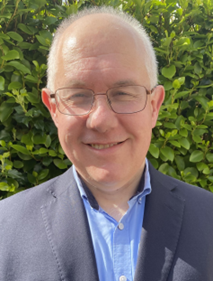
Dr Joe Harbison is Associate Professor of Medical Gerontology and a Consultant Stroke Physician and Geriatrician. Upon completion of specialist training in the Northeast of England and obtaining his doctorate from the University of Newcastle upon Tyne he worked in the NHS and for the Hull York Medical School. He was appointed to Trinity College Dublin and St James’s Hospital in 2006. He became the first National Clinical Lead in Stroke in 2010 and in 2012 helped develop the Irish National Audit of Stroke which he still leads. This resource now holds data on nearly sixty thousand individual stroke events. His primary research interests are in the epidemiology of stroke and atrial fibrillation.
He is a member of both national and international research consortia and collaborations and has been an active clinical trialist throughout his career. He is currently Deputy Head of the School of Medicine and previously served as its Director of Undergraduate Education for five years. He has also spent four years as the Head of Discipline in Medical Gerontology. Outside his clinical and academic activities. He is a published medical historian and directs a medical history module within the School. He is currently a Director of the Irish Heart Foundation
Meriel Huggard (Professor)

Meriel Huggard is an internationally regarded researcher and innovator in iterative knowledge generation. Her research focusses on the extraction of trustworthy meaning and understanding from data irrespective of where that data arises, spanning across settings as diverse as constrained devices and computer networks to educational and health care environments. She is a recipient of the Trinity College Dublin Provost’s Teaching award, reflecting her dedication and effectiveness as an exceptional educator, an elected member of the Board of Governors of the IEEE Education Society and Director of Global Relations in the School of Computer Science and Statistics. Her standing within her professional community has led to many recognitions, including invited visiting professor positions in the USA and leadership roles with international funding bodies.
David Igoe (Professor)
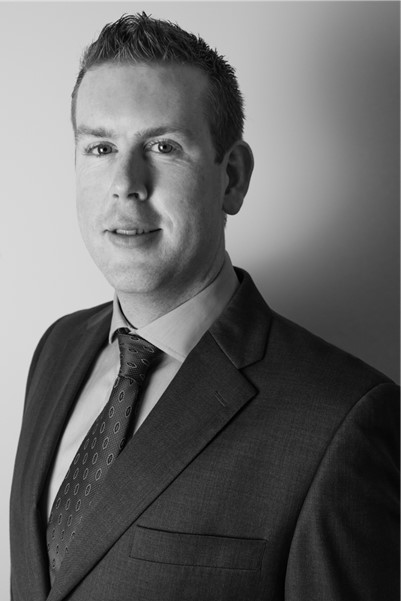
David Igoe is an Assistant Professor at the School of Engineering, where he leads the Geotechnical Research Group. David received a B.E. in Civil Engineering (2005) followed by a Ph.D. in Geotechnical Engineering from University College Dublin (2010). This was followed by post-doctorate work in offshore foundation design in University College Dublin where David worked on the Pile Stability Analysis (PISA) project, which won the prestigious BGA Fleming Award and was recognised by the UK Carbon Trust as one of the 10 most high impact projects undertaken in the last 10 years by the Offshore Wind Accelerator program. David then worked in industry for 2 years where he led the offshore engineering team at Gavin and Doherty Geosolution (GDG) before joining TCD as Assistant Professor in 2017.
David’s research focusses primarily on offshore geotechnical engineering, where his research group is currently focused on solving the technical challenges in developing offshore wind energy. David is actively involved in driving innovation within the geotechnical engineering community through advancements in fundamental understanding of soil behaviour, numerical modelling and experimental testing. David’s research has received funding from Science Foundation Ireland, Engineering and Physical Sciences Research Council (UK), Irish Research Council, Sustainable Energy Authority of Ireland and Geological Survey Ireland.
Alan Irvine (Professor)
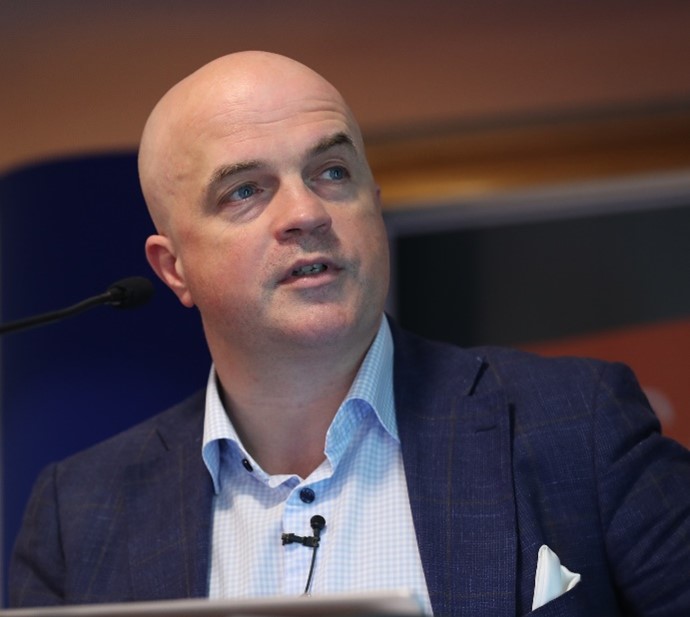
Alan is a Physician Scientist (Professor in Dermatology, Trinity College Dublin; Dermatologist in Children’s Health Ireland and St. James’s Hospital). He trained in Dermatology and Genetics in Belfast and Great Ormond Street Hospital and at Northwestern as a Fulbright Scholar. His research is directed towards improving the lives of people with both common and rare skin disorders and spans basic mechanisms of disease to patient-focussed investigational studies and clinical trials.
As a PI/Co-PI he has raised > €28M in funding to pursue research on genodermatoses, drug repurposing for rare disease, characterisation of the skin barrier, host: microbiome interactions and drug development for atopic dermatitis. He has authored > 300 scientific papers; and has given Keynote/Plenary Lectures at NIH & Keystone Symposia and the major Dermatology (AAD, EADV, WCD) and Allergy (AAAAI, EAACI) Conferences. His discovery, with Irwin McLean, of filaggrin loss-of-function mutations in atopic dermatitis demonstrated the importance of the epithelial barrier in the pathogenesis of atopic/allergic diseases, which affect >1.5 billion people.
He has been elected to the Royal Irish Academy, Academia Europaea & Royal Society of Edinburgh.
Jo-Hanna Ivers (Associate Professor)
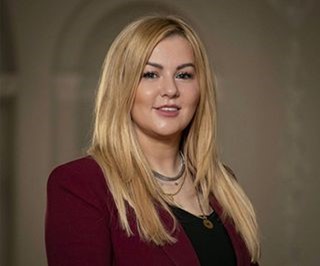
Professor Jo-Hanna Ivers is an Associate Professor in Addiction. She holds the only addiction-specific academic post in Ireland. She is the first Associate Dean of Civic Engagement and Social Innovation at Trinity College Dublin. Jo-Hanna leads the Neurobehavioural Addiction Research Group at the Department of Public Health & Primary Care, School of Medicine. Jo-Hanna is the Director of the M.Sc. in Addiction Recovery.
She has been appointed by several Ministers and Government Representatives to Special Taskforces and Expert Review Groups to examine drug and alcohol use. She is a Member of the European Monitoring Centre on Drug and Drug Addiction (EMCDDA) Scientific Committee. She is also a member of the Council of Europe, the Pompidou Expert Group on Human Rights, and Drug Policy. She was the Scientific Advisor to the Citizens Assembly on Drugs. Jo-Hanna's research focuses on the biological, social and environmental factors that contribute to an individual's vulnerability to dependence and addiction. Her research includes interventions, policies, and practices that help to develop recovery pathways. These pathways are best understood as a spectrum and include harm reduction, abstinence, and long-term recovery. Her population of interest includes people who use drugs, those experiencing addiction, individuals in recovery, their families, communities affected by drug use, and wider members of society.
Before returning to academia, Jo-Hanna gained extensive experience working with adolescent and adult populations in specialist addiction services within the National Health Service.
Iracema Leroi (Professor)
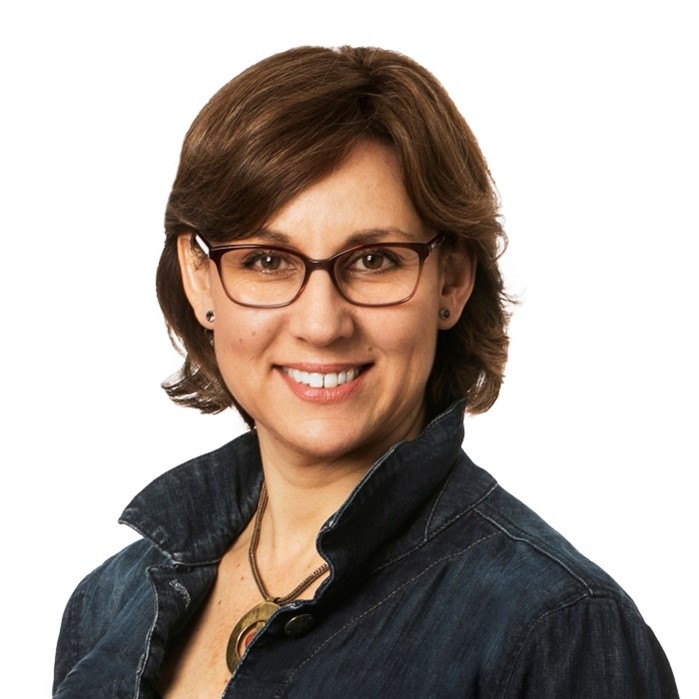
Iracema Leroi is a Professor in Geriatric Psychiatry, Trinity College Dublin and the Global Brain Health Institute (www.gbhi.org), and a consultant geriatric psychiatrist at St James’ Hospital, Dublin. She trained in Canada and in the US, in the neuropsychiatry programme at Johns Hopkins University, and until recently, was Professor of Psychiatry at the University of Manchester where she founded and led the Greater Manchester Dementia Clinical Trials’ Programme. She now leads HRB-CTN Dementia Trials Ireland network and is Principal Investigator for a portfolio of drug and non-drug clinical trials for dementia at St James’ Hospital, Dublin.
Iracema has a particular interest in the mental health aspects of Lewy body diseases. She now leads a 4-year HRB-funded program grant, EMERALD Lewy, which aims to improve the diagnosis and care for people with Ley body dementias. She was also Chief Investigator of EU-wide H2020 SENSE-Cog programme (www.sense-cog.eu) involving 8 nations and 37 investigators. SENSE-Cog which explored the links among age-related hearing, vision and cognitive impairment and the impact of improving hearing and vision in people with dementia.
As a member of the Global Brain Health Institute, Iracema is passionate about equity of access to brain health care and ensuring that the voice of those living with dementia is represented in research, policy and service development.
Kate Maguire (Professor)
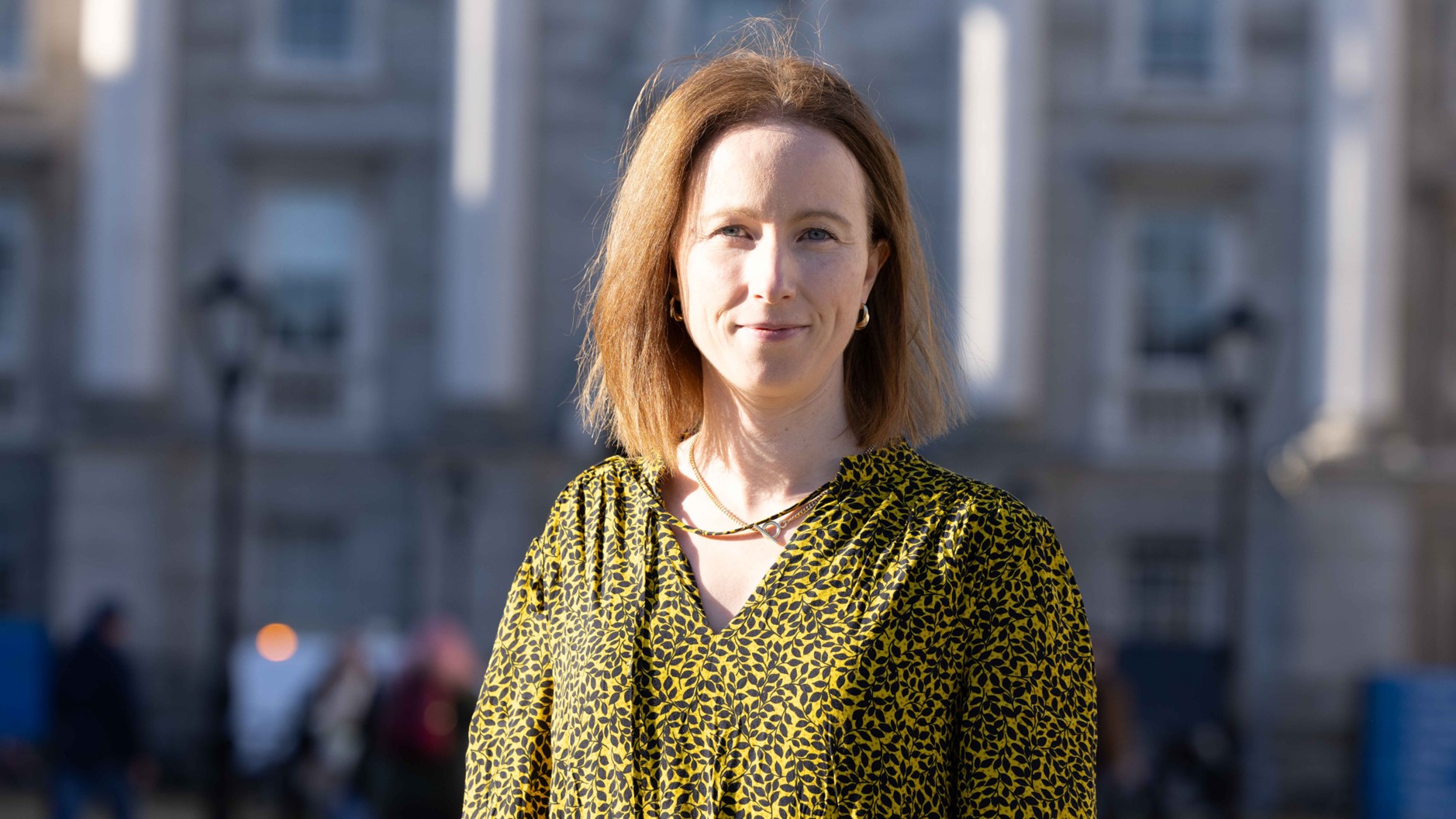
Kate Maguire is a Professor in Astrophysics in the School of Physics, and she leads a group studying explosive astrophysical phenomena, such as supernovae, gravitational-wave counterparts, and exotic extra-galactic transients. She joined the academic staff at Trinity in 2019 from Queen’s University Belfast, where she was a lecturer and STFC Ernest Rutherford Advanced Fellow. Prior to this, she was a Marie Curie and ESO fellow at the European Southern Observatory and spent time as a post-doctoral research fellow at the University of Oxford.
She obtained her Ph.D. in astrophysics from Queen’s University Belfast. She has been awarded an ERC Starting grant (2017) and ERC Consolidator grant (2023) for her research into the explosive endpoints of stellar evolution. Understanding these explosions is essential for determining the origin of the elements, as well as the fundamentals of the ‘Dark Universe’, in particular constraining the properties of the mysterious quantity dark energy through next-generation observational measurements.
Stephen Maher (Associate Professor)
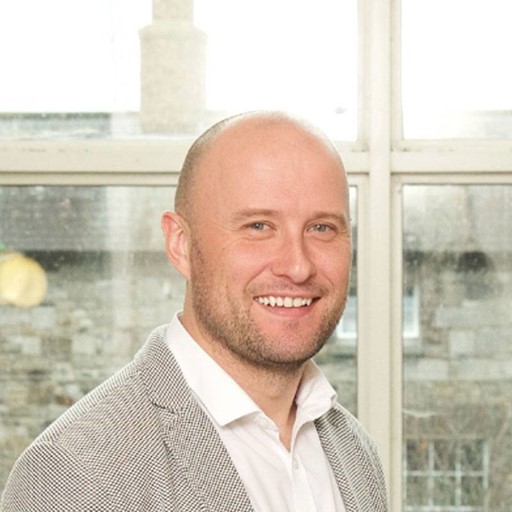
Stephen Maher is Associate Professor in Surgery with the School of Medicine. Stephen graduated from RCSI in 2004 with a Ph.D. in Oncology. He spent 3 years as a visiting fellow at the National Cancer Institute on Fort Detrick in the USA, working on a novel immunoregulatory anti-cancer therapy. In 2007 he returned to Ireland and Trinity College Dublin, St. James's Hospital as a research fellow.
In 2010 he established his own lab group having secured a personal Irish Cancer Society Fellowship, subsequently secured several large project grants, all in the area of radiation and chemotherapy research. In 2012 Stephen moved to the University of Hull and Hull York Medical School in the UK as a Senior Lecturer, where he established and led the Cancer Biology and Therapeutics lab, as well as undergraduate and MSc teaching programmes in translational oncology. He has successfully supervised 9 Ph.D. students and has mentored several postdoctoral researchers. He has secured in excess of €3.5m in competitive research funding, and has published >70 research articles in the field of microRNAs, gastrointestinal cancer and therapeutics research. In 2016 Stephen returned to TCD as the Ussher Assistant Professor in Translational Oncology, Radiation Therapy and Chemotherapy and was promoted to Associate Professor in 2020. He currently leads programmes in translational oesophageal and pancreatic cancer research, focusing on the biology underpinning progression of pre-malignant conditions, radiobiology, and radiotherapy and chemotherapy resistance. He has established new hypoxia and radiotherapy research cores at the Trinity Translational Medicine Institute.
Stephen delivers oncology teaching at both the UG and PG at TCD, and is on the teaching advisory board for the Trinity St. James Cancer Institute. Stephen is also a fellow of the UK Higher Education Academy.
Joanna McGouran (Assistant Professor)
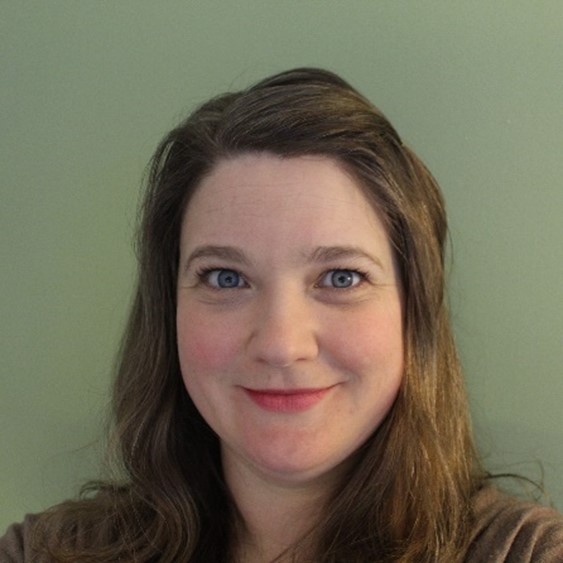
Joanna McGouran is the Schuler Assistant Professor in Translational Organic Chemistry in the School of Chemistry. Prior to her appointment in 2016 Joanna obtained a 1st class M.Chem. degree and Ph.D. in Chemistry from the University of Oxford, as well as postdoctoral experience in Medicine and Chemical Biology. Her research focusses on biomolecule modification to design highly novel, bespoke probes. These probes determine not just enzyme abundance but measure their activity in complex biological systems. This extremely powerful approach can tell us not just if an enzyme is there, but really tell us what it is doing. These probes are critical to our understanding what biological processes have gone awry in disease states and how effective potential therapeutics are in remedying these changes.
Eoin McNamee
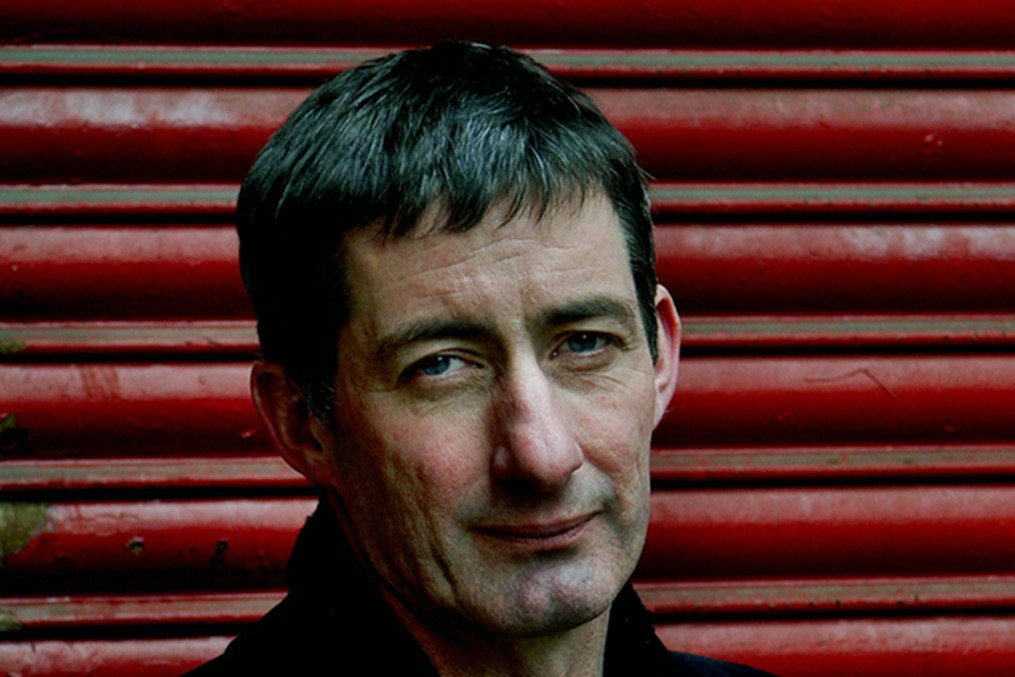
Eoin McNamee was born in Kilkeel, Co Down. He is the Director of the Trinity Oscar Wilde Centre. He has written seventeen novels including Resurrection Man, the Ultras, the Blue Trilogy and the Vogue. He has written for radio and television and is currently working on the remake of Harry’s Game for ITV. Works for cinema include Resurrection Man and I Want You.
He has won the Imison award, the CWA Steel Dagger and the Kerry Irish Fiction Awards and been nominated for many others including the Booker Prize. He is a member of Aosdana. His latest novel The Bureau will be published in 2025.
Michael Monaghan (Professor)
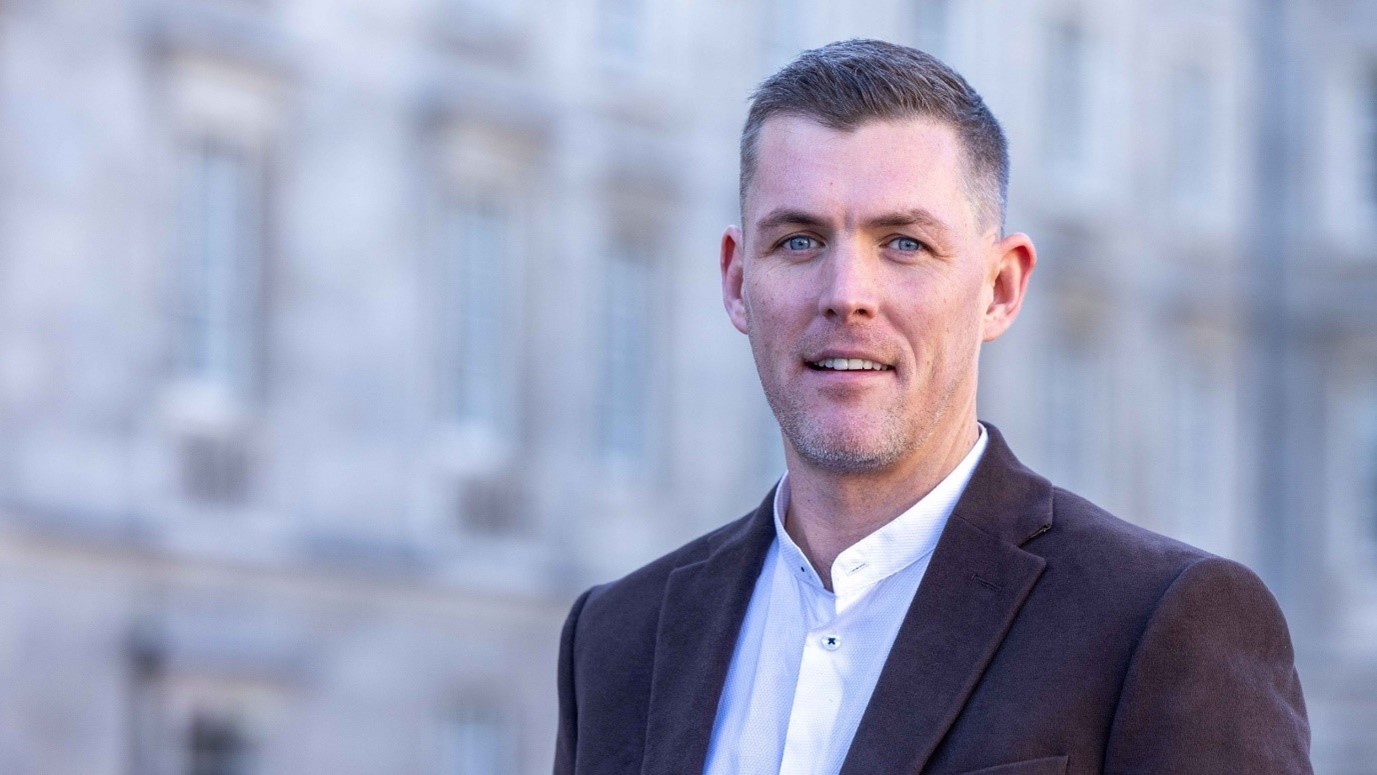
Michael Monaghan is Professor in Biomedical Engineering at Trinity College Dublin, Ireland. His group’s primary research areas are in electroconductive biomaterials, cardiac tissue regeneration, and real-time imaging of metabolism in differentiation and disease. He leads a number of interdisciplinary projects between other academic groups and industry ranging from immunometabolism, evaluation of fibrosis, and induced pluripotent stem cell derivitisation of cardiac organoids and resident immune cell populations.
His expertise and leadership of FLIM microscopy has been recognised through publication of studies in several internationally renowned journals and awarding of a Horizon Europe MSCA-doctoral network (2021) based on FLIM excellence where he is the lead coordinator. Most recently, he is the 2023 recipient of the TERMIS Robert Brown Early Career Investigator Award (2023), a European Research Council Consolidator Awardee (2023) and Science Foundation Ireland Frontier for the Future Laureate (2024).
Gary Moran (Associate Professor)
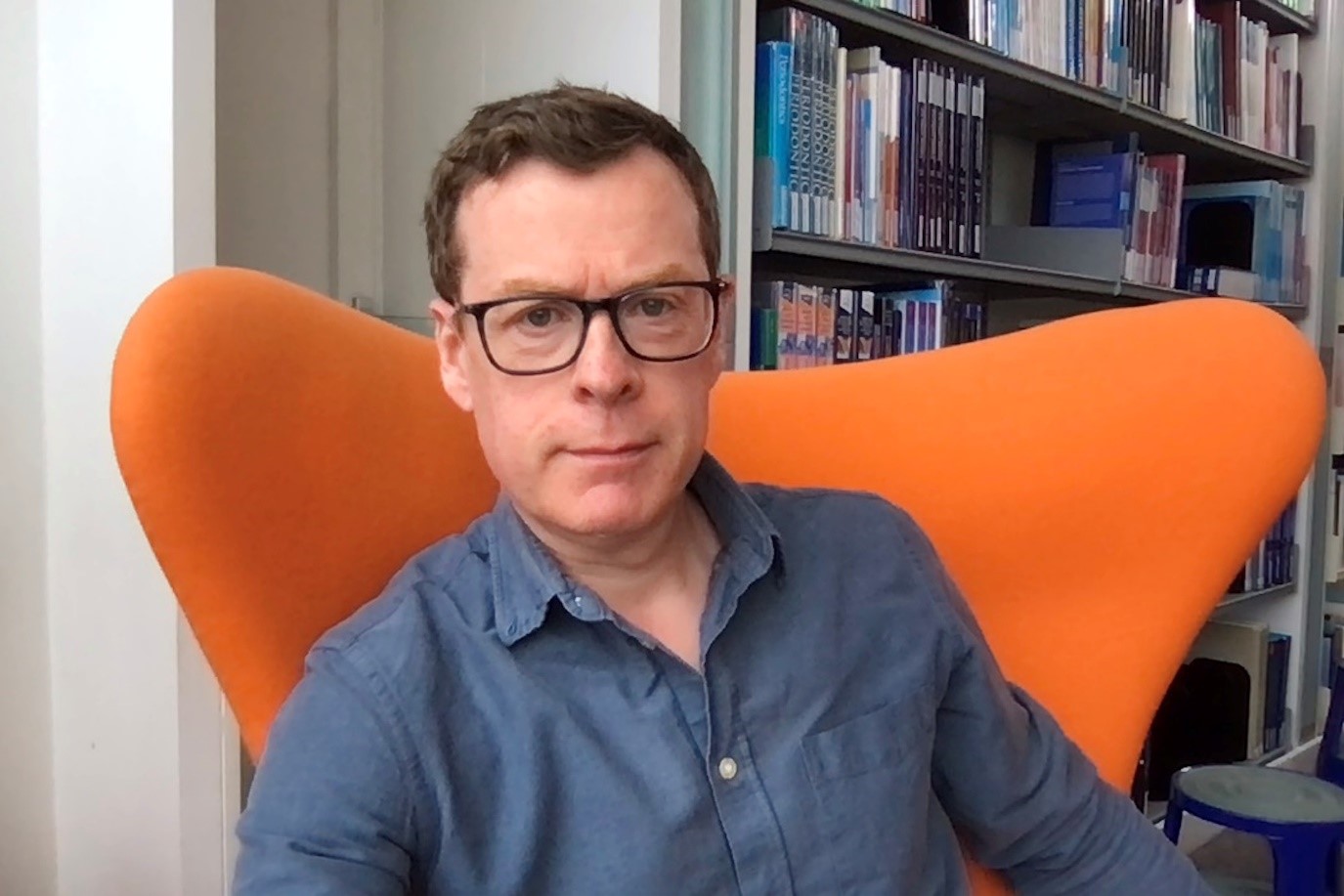
Gary Moran is an Associate Professor in Microbiology in the School of Dental Science. He competed his Ph.D. in 1998 in the Dept. of Microbiology in TCD on drug resistance in fungal pathogens. He is now based in the Dublin Dental University Hospital where he established an oral microbiome research group investigating the role of oral bacteria and fungi in health. His major research interests include the role of the oral microbiome in oral malignancies and the virulence of the fungal pathogen Candida albicans. This research is funded by the Health Research Board and Science Foundation Ireland.
He is actively involved in promoting his subject area with the Microbiology Society and formerly as President of the Irish Fungal Society and is actively engaged in public outreach activities on the oral microbiome and oral health.
Damian Murchan (Associate Professor)
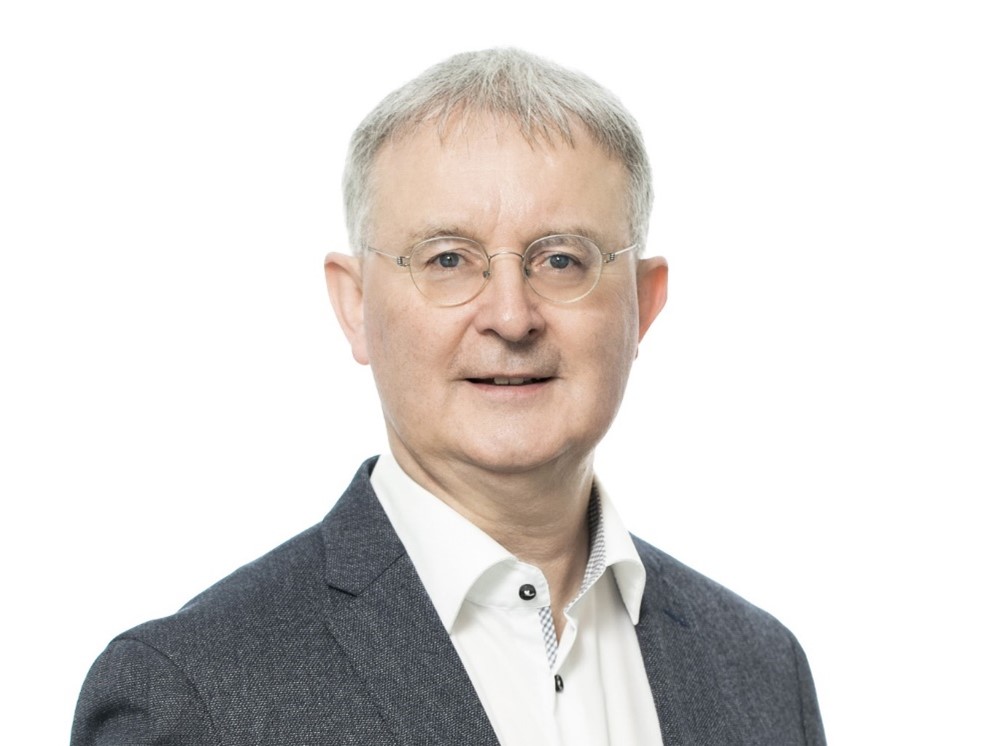
Damian Murchan is an Associate Professor in Trinity’s School of Education and is Vice-President of the Association for Educational Assessment – Europe (AEA-Europe). His research spans educational assessment, educational reform, and professional development for teachers, with particular emphasis on evidence-informed policymaking. Projects relating to high-stakes secondary school examinations include how national assessment agencies can incorporate teachers’ grades into qualifications and how students who are unable to present for exams due to illness or bereavement can be accommodated. His research on digital assessment investigates how automated analysis of learners’ errors on tests can help teachers diagnose children’s strengths and weaknesses in primary mathematics and he explores the ethical implications of using data analytics drawn from computerised tests.
Professor Murchan engages with national education agencies on the design and implementation of assessment and examination systems. His work in North Macedonia and Kosovo provided blueprints for the national rollout of school-based assessment systems covering compulsory education. In Ireland he provided technical advice to support the post-marking adjustment of Leaving Certificate results since the COVID-19 pandemic.
Professor Murchan is a graduate of Cornell University (Ph.D. and Master of Science) and St. Patrick’s College Drumcondra (Bachelor of Education). In 2019 he became a Fellow of AEA-Europe in recognition of his scholarly achievements and service to the field of educational assessment internationally. He was formerly a teacher and principal in primary schools. In Trinity he has held positions as Head of the School of Education and Head of the School of Creative Arts.
Noel Ó Murchadha (Professor)
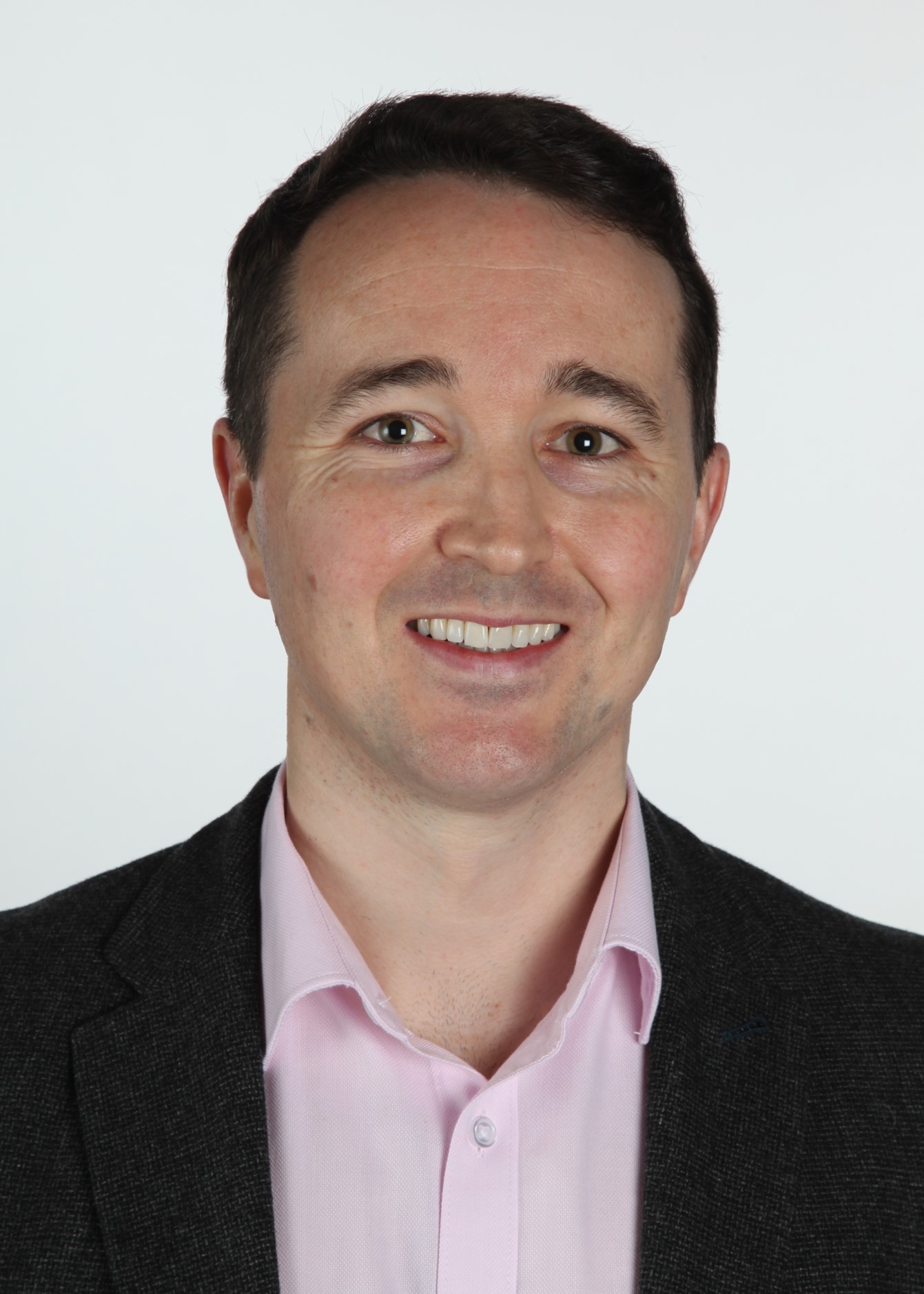
Noel Ó Murchadha is an Associate Professor in Language Education in Trinity’s School of Education. He worked previously at University College Dublin, University of Toronto and University of Limerick. His research lies in Sociolinguistics. The focus of his work is on language policy and language education policy, where policy is defined as the complex of language practices, ideologies and management, enacted in both top-down and bottom-up ways. He investigates policy, particularly in the Irish language context, as a situated sociocultural process that shapes the ways humans experience language and their wider social worlds. While he has investigated language practices and management, he is concerned primarily with language ideologies, where ideologies are defined as morally and politically loaded representations of how language functions. He has published widely on ideologies relating to Irish, focusing on perceptions of linguistic variation, target language varieties and standardisation.
He is interested in the changing relationship between self and society in the late modern age and in the ways that these changes are negotiated through language.
Anne O'Connell (Professor)
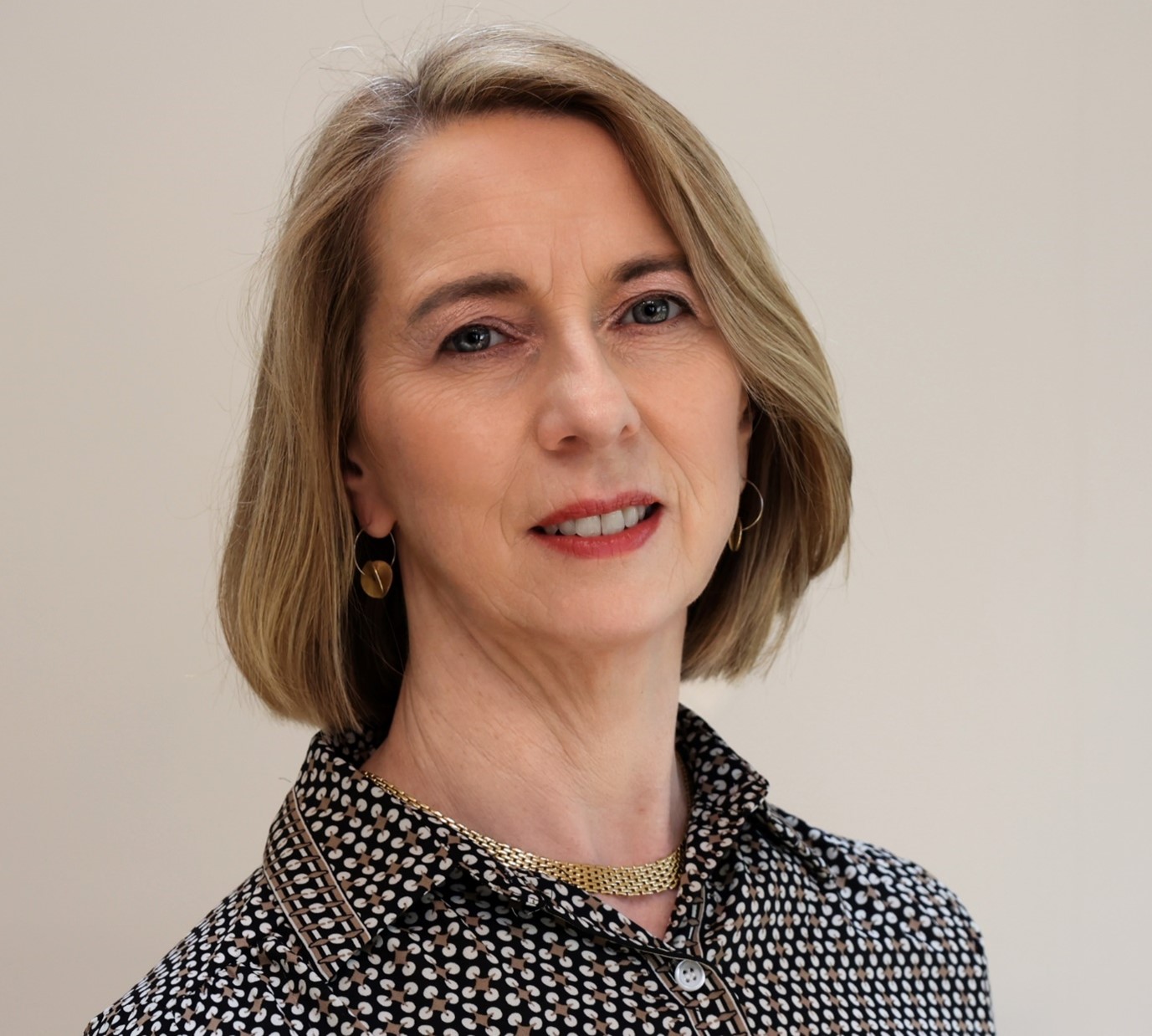
Anne O’Connell is the Professor/ Consultant in Paediatric Dentistry, at the School of Dental Science and Dublin Dental University Hospital, Trinity College, Dublin, Ireland, and at CHI at Tallaght. Anne qualified from TCD in 1984 and trained in Paediatric Dentistry and Cariology in Rochester, USA. She remained in academia in USA until she returned to TCD in 2000 to lead Paediatric Dentistry education in Ireland.
She is a Board-certified Paediatric Dentist and a Fellow of IADT, AAPD and PFA. Anne has published more than 100 papers (H index 27, citations 4862, i10 index 47) and several book chapters. Her areas of research interest include traumatic oral injuries, dental education, infant oral health, cariology, and developmental defects of the dentition and actively publishes and lectures extensively on these topics around the world.
Anne is active within a number of national and international organisations. She is current Past President of IADT and International Consultant on the Scientific Affairs Committee of AAPD as well as education committee and Fellowship committee of IAPD and International liaison for ISDC. Previous roles include: President of the International Association of Dental Traumatology ( 4 years), IADT Board member( 8 years); President of ISDC, Honorary Editor for IAPD and Board Member (4 years).
Martha O'Hagan Luff (Professor)
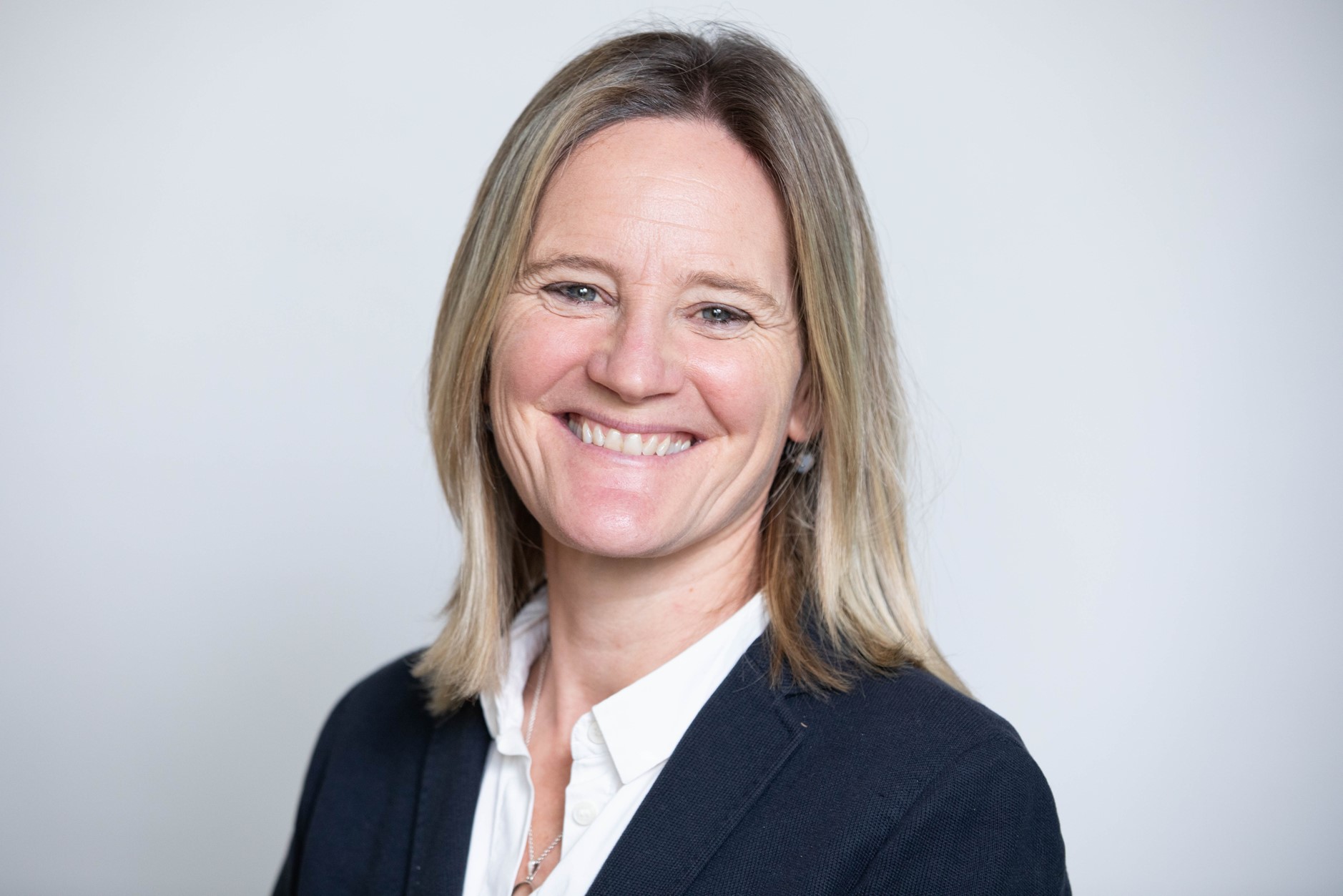
Martha O’Hagan-Luff is an Associate Professor of Finance in Trinity Business School. She holds a B.A. in Economics, an M.Sc. in Finance and a Ph.D. in International Finance from Trinity College Dublin. Her research into Behavioural Finance, Entrepreneurship and Sustainable Finance has been published in top business journals. She received an Irish Research Council Laureate Award for the project Investgreen and is a researcher in Forest, an interdisciplinary project on forestry in Ireland.
Prior to completing her Ph.D. she worked in Investment Banking in London and Dublin, for Bank of America, Credit Suisse First Boston and Bank of Ireland. She received the Provost’s Teaching Excellence Award in 2020, and the Provost’s Research Supervisor Excellence Award in 2022. She has been the Director of the MSc Law and Finance, Director of the MSc Finance and Director of Undergraduate Teaching and Learning in Trinity Business School. She is on the steering committee of Natural Capital Ireland and Business for Biodiversity Ireland.
Nicholas Payne (Professor)
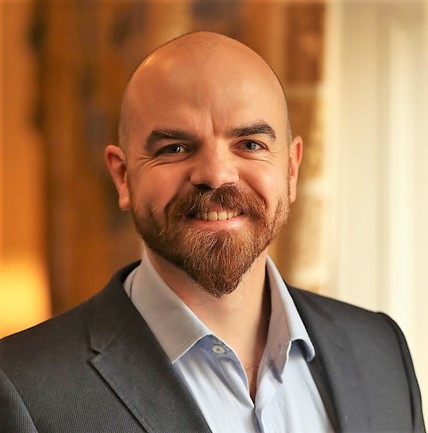
Nicholas Payne is an Assistant Professor in the Zoology department. He received a Bachelor of Environmental Science and Ph.D. at the University of Adelaide, graduating in 2011. Nick then undertook postdoctoral fellowships in Sydney, Tokyo and London, before joining Trinity in 2018. Nick’s research mostly explores the physiological ecology of animals, particularly those in marine ecosystems. An overarching goal of his work is to understand how environmental variation regulates the physiology and movement of animals and in turn, their distributions. Nick’s research group combines field, laboratory, and theoretical approaches, and his team works on species spanning cephalopods, sharks, tuna, and commercially important teleosts such as salmonids.
Nick teaches in various levels of the TR060 Biological & Biomedical Sciences degree as well as School of Natural Sciences M.Sc. programs and a broad-curriculum TEP elective. He is the current Director of the Biodiversity & Conservation M.Sc..
Daniele Pevarello (Professor)
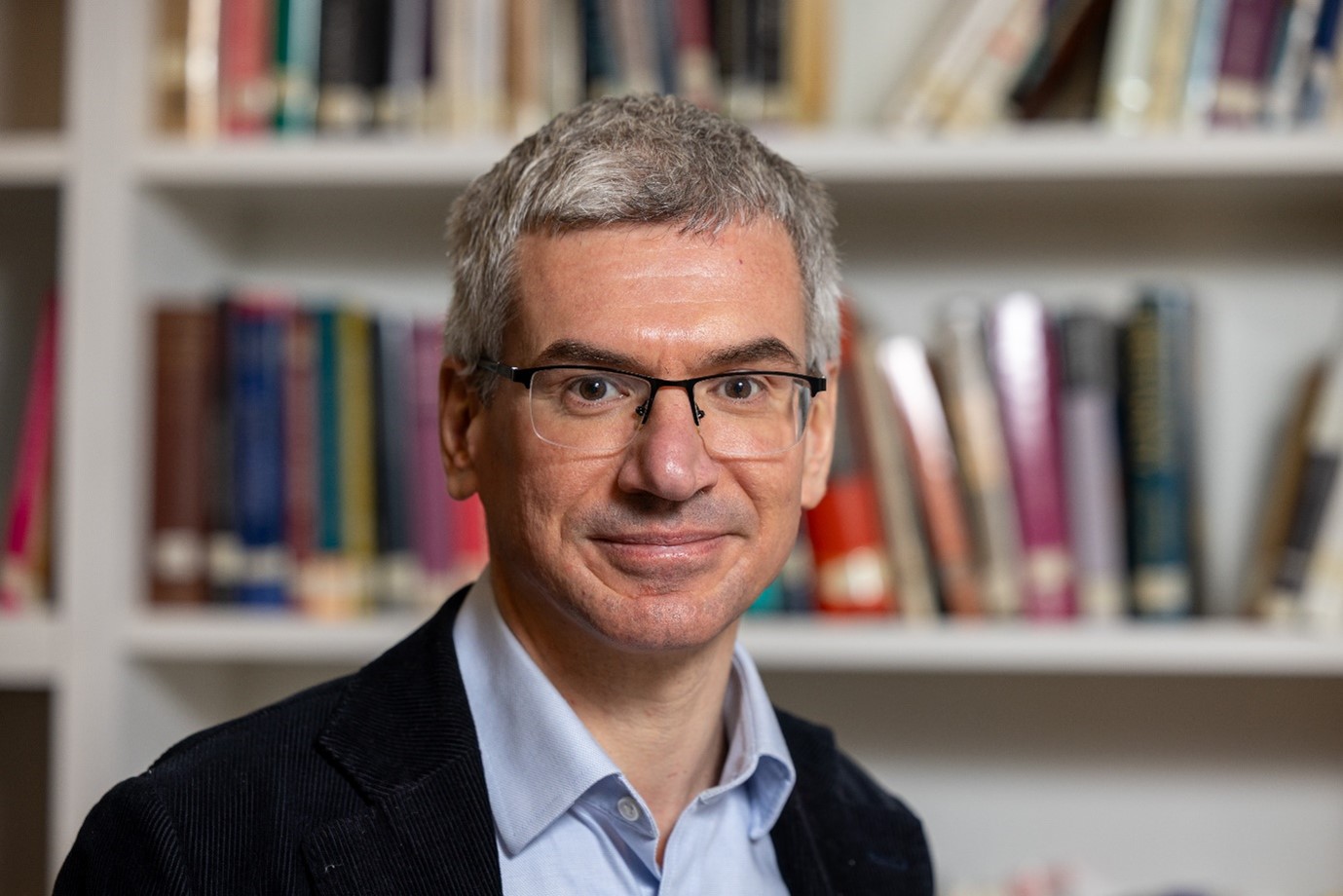
Professor Daniele Pevarello has studied Jewish and Early Christian Literature in Italy (Rome) and Germany (Bielefeld) and has received his Ph.D. from the University of Cambridge (England), where he was a Lewis and Gibson Scholar, with a thesis on the influence of Pythagoreanism on Early Christian asceticism.
His research focuses on the interaction between Early Christian thought and Graeco-Roman philosophy with particular emphasis on the construction of the religious identity and the conceptual world of the early Christians. He has published widely on friendship in Early Christianity, the reception of Paul in the second and third century, Roman imperialism in the Gospel of Matthew and the role of Graeco-Roman moral philosophy in the development of early Christian asceticism. He authored two monographs: Il discorso eucaristico in Giovanni 6: unità e messaggio (2012) and The Sentences of Sextus and the Origins of Christian Asceticism (2013).
He has held visiting professorships and served in numerous steering committees of research units in the USA, Italy, and Sweden. He was a member of the board of the Irish Biblical Association and is the convenor of several research panels at the European Academy of Religion.
Maria Gracia Porcedda (Professor)
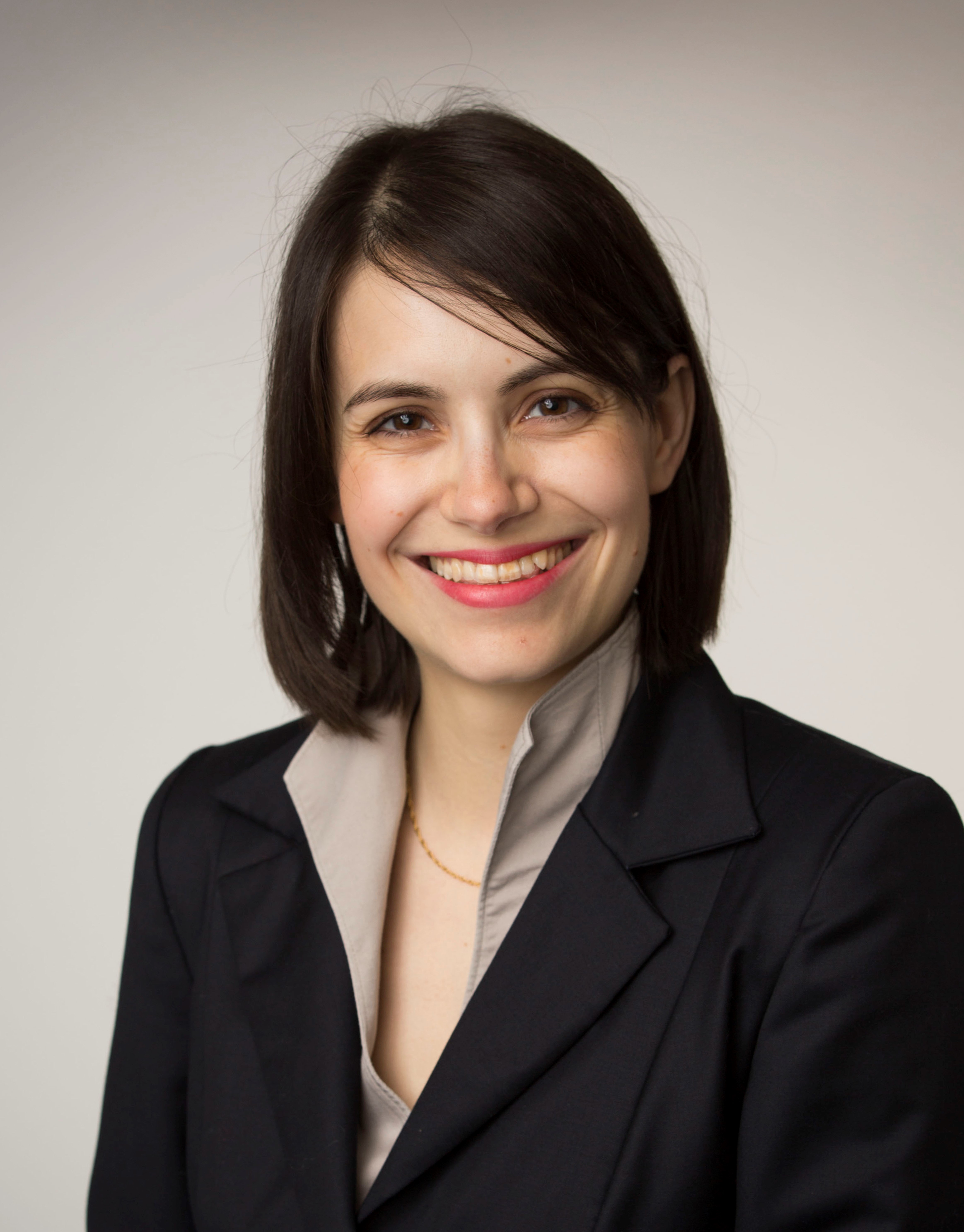
Dr Maria Grazia Porcedda is Assistant Professor in Information Technology Law. A jurist and political scientist by training, she carries out legal, interdisciplinary and policy-oriented research on cybercrime, cybersecurity, data protection, privacy, surveillance and systemic factors that shape IT law. Maria Grazia’s monograph ‘Cybersecurity, Privacy and Data Protection in EU Law’ (Hart Publishing 2023) is the first major work on this topic. Her work has appeared in books and leading journals published by, among others, Bloomsbury, Elsevier, IEEE, OUP and Springer.
Maria Grazia’s research is sponsored by Enterprise Ireland, the Society of Legal Scholars, a Provost’s Ph.D. Project Award and the EU MSCA DN HARNESS. She is a Collaborator with the ADAPT Centre and member of the PI team applying for the new SFI centre. She holds a Ruffini prize from Accademia Nazionale dei Lincei. Maria Grazia regularly serves on project ethical advisory boards and is a member of the European Data Protection Board's Support Pool of Experts. She holds degrees from the Universities of Cagliari (B.A.) and Bologna (M.A.) with Scholarship from Collegio Superiore and the European University Institute (L.L.M., Ph.D.).
Maria J. Santos-Martinez (Professor)
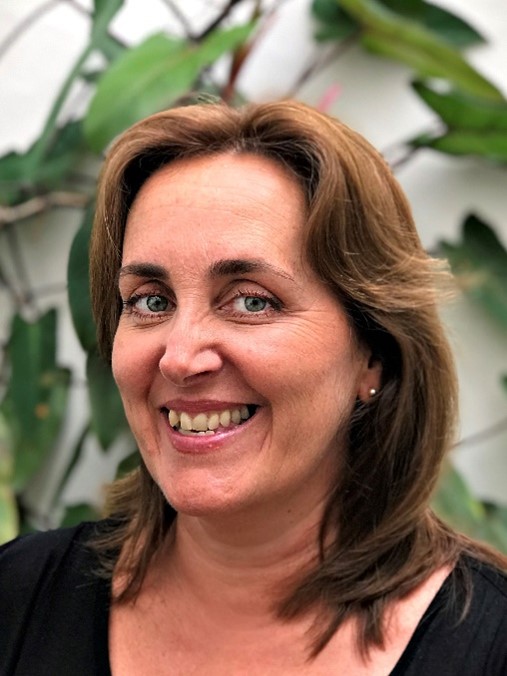
Dr Maria J Santos-Martinez is a medical doctor, specialist in Respiratory Medicine from the Universidad Autónoma de Barcelona (Spain). She started her research career in 2004 (Texas Medical Center, UTHealth Houston, USA) and in 2006 she moved to Ireland where she defended her Ph.D. in 2009 (TCD). In 2010 she was appointed as Assistant Professor (Ussher) in Nanopharmaceutical Drug Discovery, and she is currently Associated Professor at the School of Pharmacy and Pharmaceutical Sciences & School of Medicine.
Her research is focused on cancer and nanoscience. She explores the contribution of blood platelets to cancer progression and the application of nanotechnology to cancer treatment, investigating the interactions between nanoparticles developed for drug delivery, their targets, and the potential barriers that they must overcome for exerting their action. Her expertise on platelets and nanotoxicology has allowed her to establish multiple national and international collaborations, secured funding, and significantly contribute to relevant publications in her field of research.
Matthew Saunders (Assistant Professor)
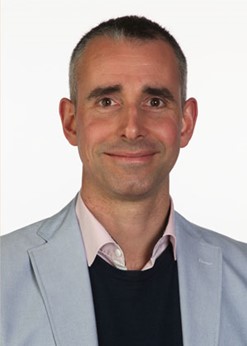
Matthew Saunders is an Assistant Professor in the Botany Discipline within the School of Natural Sciences. He specialises in the field of plant and environment physiology, in particular how plants respond to changes in their physical, chemical, and biological environments and how this information can be used to assess the resilience and adaptive capacity of terrestrial ecosystems to global environmental change. His work utilises an integrated experimental and model-based approach to assess the physiological and environmental processes that regulate plant productivity, carbon sequestration, greenhouse gas dynamics, plant-water relations and energy budgets at the leaf, whole plant, and ecosystem scale. Current research projects are focussed on the impacts of peatland restoration, afforestation and extreme climatic events on carbon, water, and greenhouse gas dynamics in both temperate and tropical climates.
He is a national representative within the European International Carbon Observation System (ICOS) and is part of an interdisciplinary team working to design the observational network required to provide key climate services across Africa. This work directly contributes to the development of policy relevant, sustainable land management tools that are centred on the role of terrestrial ecosystems in climate change adaptation and mitigation.
Fintan Sheerin (Associate Professor)
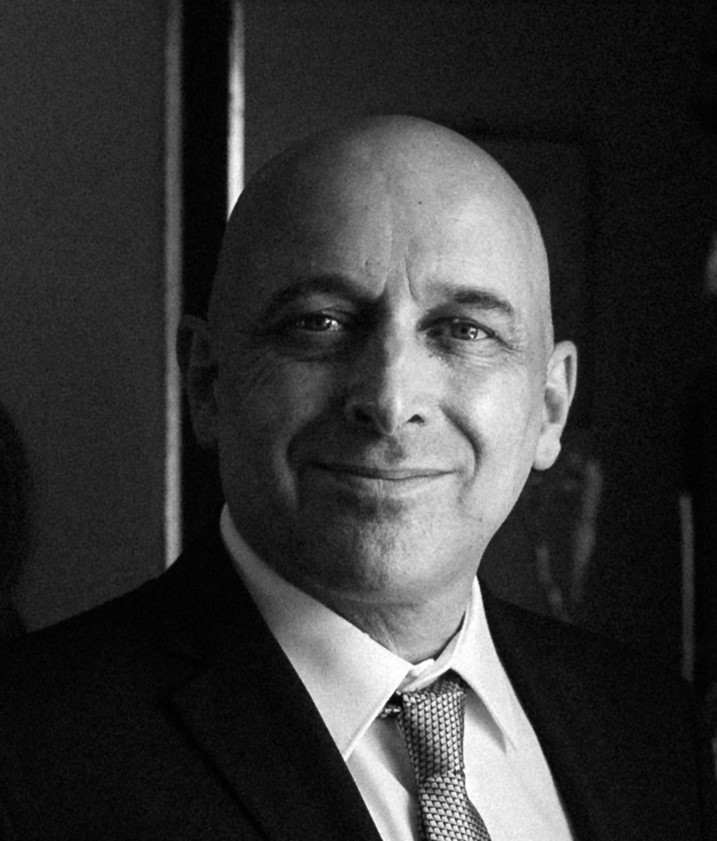
Professor Sheerin is an Intellectual Disability and General Nurse, with extensive experience of nursing across a number of fields of practice. He holds a Ph.D. from Ulster University, for which he was awarded an All-Ireland Nursing Research Fellowship. He is Head of the School of Nursing and Midwifery.
Professor Sheerin’s contribution to society is significant. Much of his work has focused on the rights and wellbeing of people with intellectual disability within both Irish and global health contexts. He has led health teams, in a voluntary capacity, to refugee camps across Europe (Calais and Lesbos). Caring is core to his values. Over the years, whether in healthcare, social action in refugee camps, community development in Malawi, building inclusion in his hometown, or in academia, he has come to believe in the importance of human engagement. He has learned that if the relational groundwork is not attended to, then other outcomes are much more difficult to achieve. Thus, he spends time building relationships and instilling a culture of inclusion and community.
Professor Sheerin leads the mental health component of the IDS-TILDA research project his work focuses on wellbeing of persons with intellectual disabilities.
Professor Sheerin was a member of the Board of Trinity College Dublin and chair of the Equality Committee. He was instrumental in working towards Trinity College's designation as a University of Sanctuary. He led the IUA Heads of Schools of Nursing and Midwifery at the height of the pandemic, advocating for students at departmental, regulatory body and health service levels.
He was President of the European nursing informatics association, ACENDIO, and General Secretary of the European Federation of Nurse Educators (FINE). He is Fellow of the European Academy of Nursing Sciences, of NANDA-International, and a Member of the Royal Society for Biology.
Kenneth Silver (Assistant Professor)
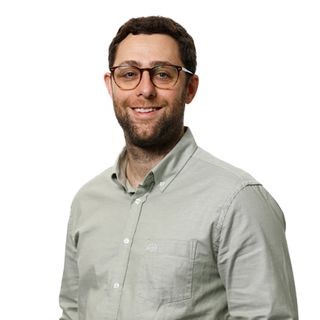
Dr. Silver is an Associate Professor in Business Ethics within the Trinity Business School of Trinity College Dublin. He teaches courses on ethical conduct both within and outside of the marketplace. Dr. Silver is currently the PI on the ERC Starting Grant, "Corporate Moral Progress," which is focused on corporate moral responsibility, corporate personhood, and corporate moral improvement. However, Dr. Silver researches on an array of cross-disciplinary topics between philosophy, business ethics, and management scholarship.
Dr. Silver graduated with a Bachelors degree in Philosophy from the University of North Carolina at Chapel Hill and Doctorate in Philosophy from the University of Southern California.
Mark Sweetnam (Assistant Professor)
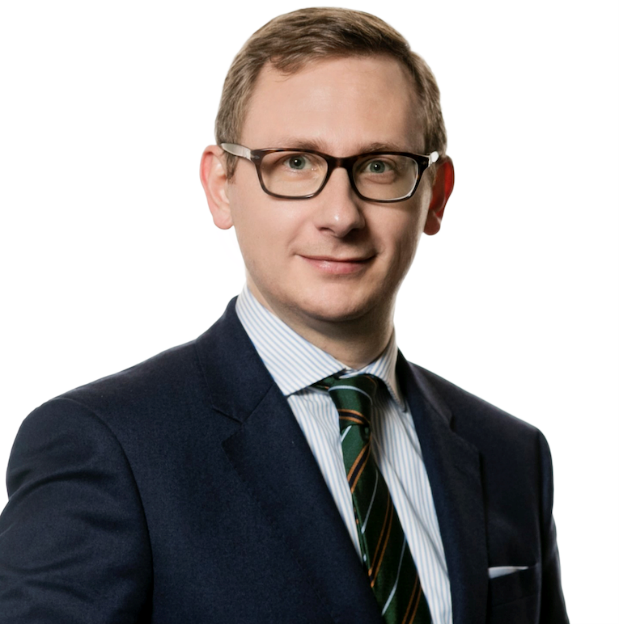
Mark Sweetnam is Assistant Professor in English and Digital Humanities in the School of English. A graduate of Trinity College Dublin (B.A., 2004; H.Dip.Ed., 2005; Ph.D., 2008), he was a postdoctoral research fellow on significant Digital Humanities research projects at the University of Aberdeen and Trinity College Dublin before joining the School of English in 2015. His research interests focus on early modern literature, evangelicalism, and Biblical literature.
In addition to a range of articles, chapters, and edited collections, he has published three monographs, including, most recently, Paul’s Last Letter: A Commentary on the Second Epistle to Timothy, which is forthcoming from Wipf & Stock. His research has been funded by the IRCHSS and the European Commission.
He is a Fellow of the Royal Historical Society and a member of the Christian Brethren Archive Advisory Group at the University of Manchester. He currently serves the College as the Associate Dean of Undergraduate Common Architecture.
Jürgen Uhlich (Professor)
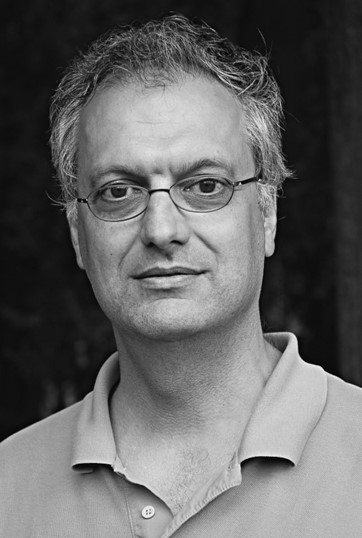
Jürgen Uhlich, born in Frankfurt/Main, Germany, studied comparative Indo-European philology, Classics and Celtic philology at the universities of Bonn and Galway and obtained the degree of Dr.Phil. at Bonn University in 1993. Since 1997, he has been working as a lecturer in Early Irish and Celtic Studies in the Irish Department at Trinity College Dublin. His principal research interests, and areas of publication, are Comparative Indo-European and Celtic philology and especially Old and Middle Irish linguistics and textual studies. He is currently working on a Handbook of Early Old Irish, which will, for the first time, provide critical editions and a grammatical overview of all extant documents from that period (7th to 8th centuries AD).
Sven Vanneste (Professor)
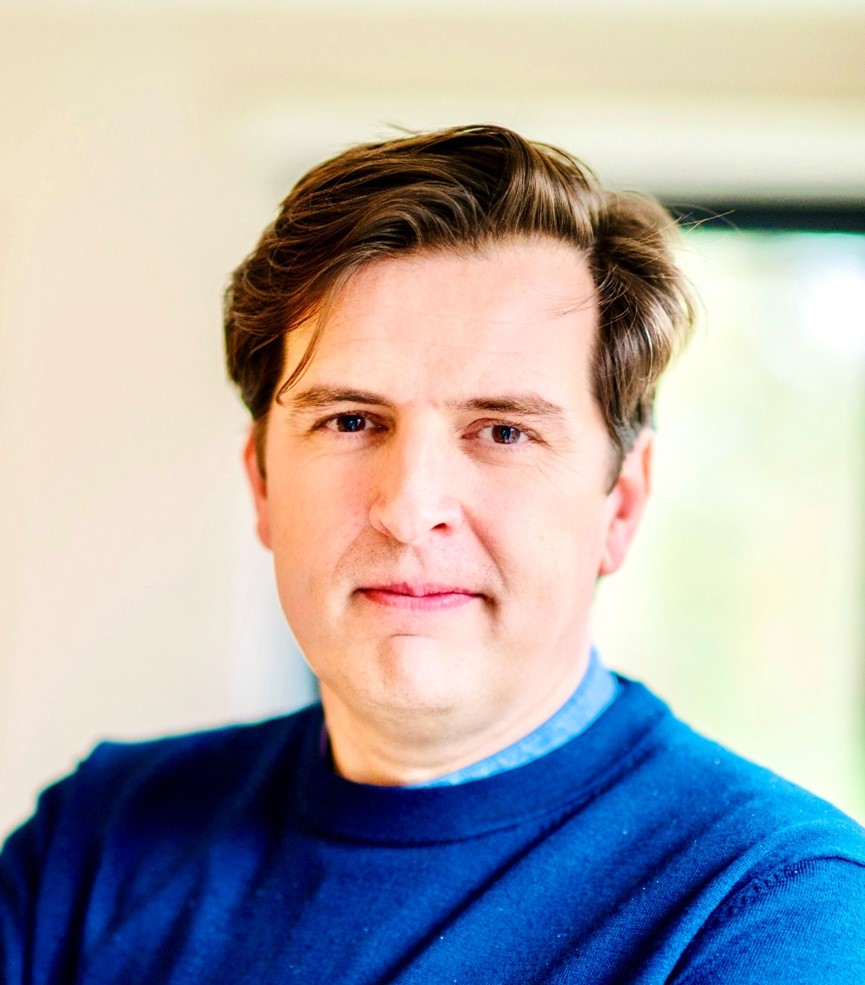
Sven Vanneste is a Professor of Global Brain Health and Head of the School of Psychology at Trinity College Dublin. Professor Vanneste completed his studies at Ghent University and the University of Antwerp, where he obtained a Ph.D. in Medical Sciences with a specialization in Neuroscience. Before joining Trinity College, he was a Professor of Neuroscience at The University of Texas at Dallas. The overall objective of Professor Vanneste's work is to: (1) advance fundamental knowledge of human brain function; (2) use this knowledge to develop new clinical applications and treatment approaches. His research has shown that tinnitus (ringing in the ear) is the consequence of altered neural activity in specific brain networks rather than an ear problem, contributing to a paradigm shift. He has demonstrated that tinnitus has different subtypes related to hearing loss and that similar neural mechanisms play a role in different subtypes, which also applies to chronic pain conditions (e.g., fibromyalgia, neuropathic pain). These findings have led to new treatment approaches, including invasive and non-invasive brain stimulation techniques used in clinics and hospitals worldwide. Evidence of the transformational nature of his work is illustrated by over 300 scientific publications in international peer-reviewed journals.
In the last five years, he has published in top journals including Nature Communications, Science Advances, Science Translational Medicine, ELife, Neuroimage, Human Brain Mapping, and Brain Stimulation. Currently serving on the executive board of the Tinnitus Research Initiative, Professor Vanneste has also co-founded the BRAI3N clinic, which aims to translate and implement novel treatment approaches for neurological and psychiatric disorders into clinical practice.
Scholarship
THE FOLLOWING HAVE BEEN ELECTED TO SCHOLARSHIP 2024:
Course Name |
Name |
Biological and Biomedical Sciences |
Ruairí Goodwin |
Chemical Sciences |
Tiago Marques |
Children's and General Nursing |
Aoife Carr |
Classics, Ancient History and Archaeology |
Quinn Schein |
Clinical Speech and Language Studies |
Aibhe Cronin |
Computer Science |
Justin Ikechukwu Cunningham |
| Dental Science | Shirlynn Lee |
Drama and Theatre Studies |
Rachel Holmes |
Economic and Social Studies |
Piotr Górecki |
Engineering |
Niall Maguire |
English Studies |
Zoe Breen |
European Studies |
Joseph Carmody | History |
Luca Reuland-Donlon | Human Health and Disease |
Ava Dinnigan |
Law |
Ali McCarthy |
Law and French |
Katie Wickham |
Mathematics |
Taiga Shimazu Murray |
Medicine |
Ahmed Alshahrabally |
Middle Eastern and European Languages and Cultures |
Nicholas O'Keeffe |
Midwifery |
Julianne Prades |
| Nursing | Nicole Adove |
| Occupational Therapy | Ella Martin |
| Pharmacy | Abby Courtney Íde Swanton |
| Philosophy | Giorgia Carli Berenice Guerrero Maya Koka Aaron Martin |
| Philosophy, Political Science, Economics and Sociology | Shane Burke Eoin Connolly Georgina Dowling Kate Fennell Lara Smith |
Physical Sciences |
Erasmo Marcozzi |
Physiotherapy |
Erin McIlwane |
Psychology |
Michael Fanning Cooney Lochlan |
| Trinity Joint Honors (Classical Civilisation and English Literature) | Rhys Pearce |
| Trinity Joint Honors (Economics and Philosophy) | Nina Stremersch |
| Trinity Joint Honors (English Literature and History) | Liam Kelly Michelle Schmidt |
| Trinity Joint Honors (Film Studies and English Literature) | Isabella Hogg |
| Trinity Joint Honors (Geography and Sociology) | Phoebe Hill |
| Trinity Joint Honors (History and History of Art and Architecture) | Nora Mulvehill |
| Trinity Joint Honors (History and Philosophy) | Eva Hendley Raymond Meyer |
| Trinity Joint Honors (Irish and Modern Language) | Max Ó Donnchú |
| Trinity Joint Honors (Law and Business) | Liam O'Flanagan |
| Trinity Joint Honors (Law and History) | Allanah Ryan |
| Trinity Joint Honors (Law and Political Science) | Conor Healy |
| Trinity Joint Honors (Linguistics and Philosophy) | Giulia Villa |